



















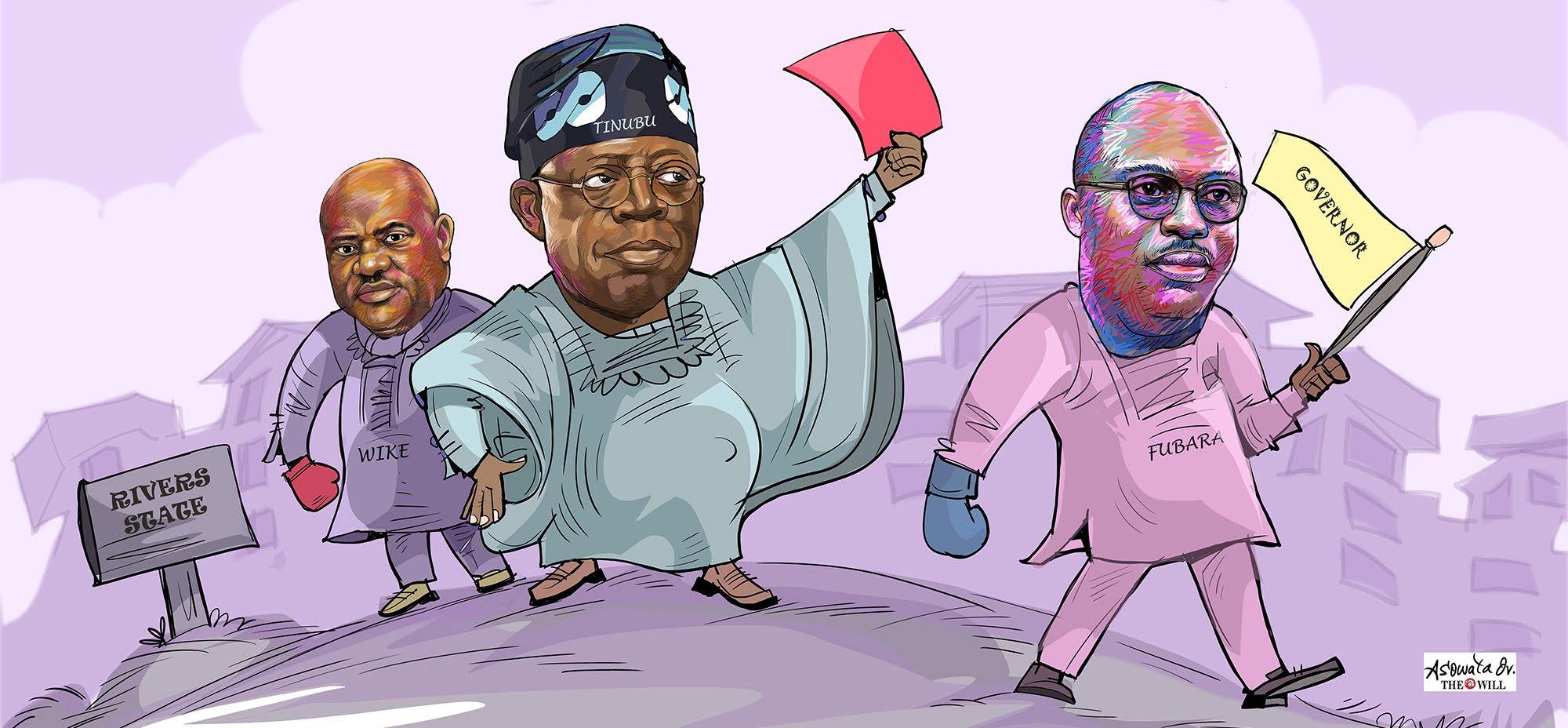
























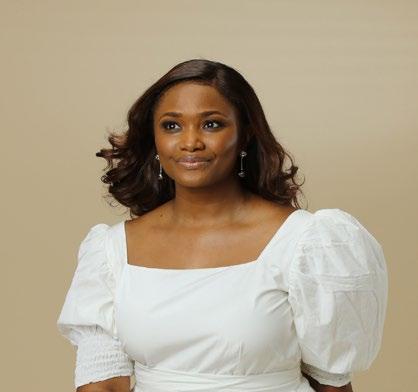
Nollywood is the core of Africa’s film industry. It has evolved from humble beginnings to become a global force enchanting audiences with its compelling stories. At the centre of this remarkable growth are movie directors who have metamorphosed Nigerian cinema into a powerhouse of creativity. These gifted individuals are not just making movies; they capture the essence of storytelling with every frame they shoot.





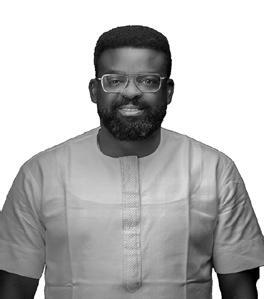


In a world where storytelling remains foremost, these directors have shown that they are the best through their fearless commitment to their craft, passion for telling African stories that resonate globally and unique storytelling styles.
Whether it’s Kunle Afolayan, the cinematic maestro born into the Afolayan filmmaking dynasty; Jade Osiberu, the fearless storyteller; Kemi Adetiba, known for her groundbreaking cinematography and audacious narratives; Moses Inwang, with his bold and thought-provoking films; or Izu Ojukwu, with his passion for Nigerian history, these directors have proven over time that they are the best in the business.
We spotlight them on pages 8 to 10. It makes for an entertaining read.
This week, the beauty page has something for men; we discuss receding hairline. As most men age, their hairline starts to recede, which can be challenging to adjust to. Have no fear; on page 12, we show you how to deal with this predicament. Scroll there to read about how to manage receding hairline.
What do you do when your romantic partner disappears without a word to you? No goodbye, nothing; they just up and leave and then six months later, they send you a message saying they are still thinking about you. Do you ignore the message or respond? Find out in this week’s Downtown Confidential on page 15.
Until next week, enjoy your read.







SUNDAY, MARCH 23, 2025
THEWILL NEWSPAPER • www.thewillnews.com


SUNDAY, MARCH 23, 2025


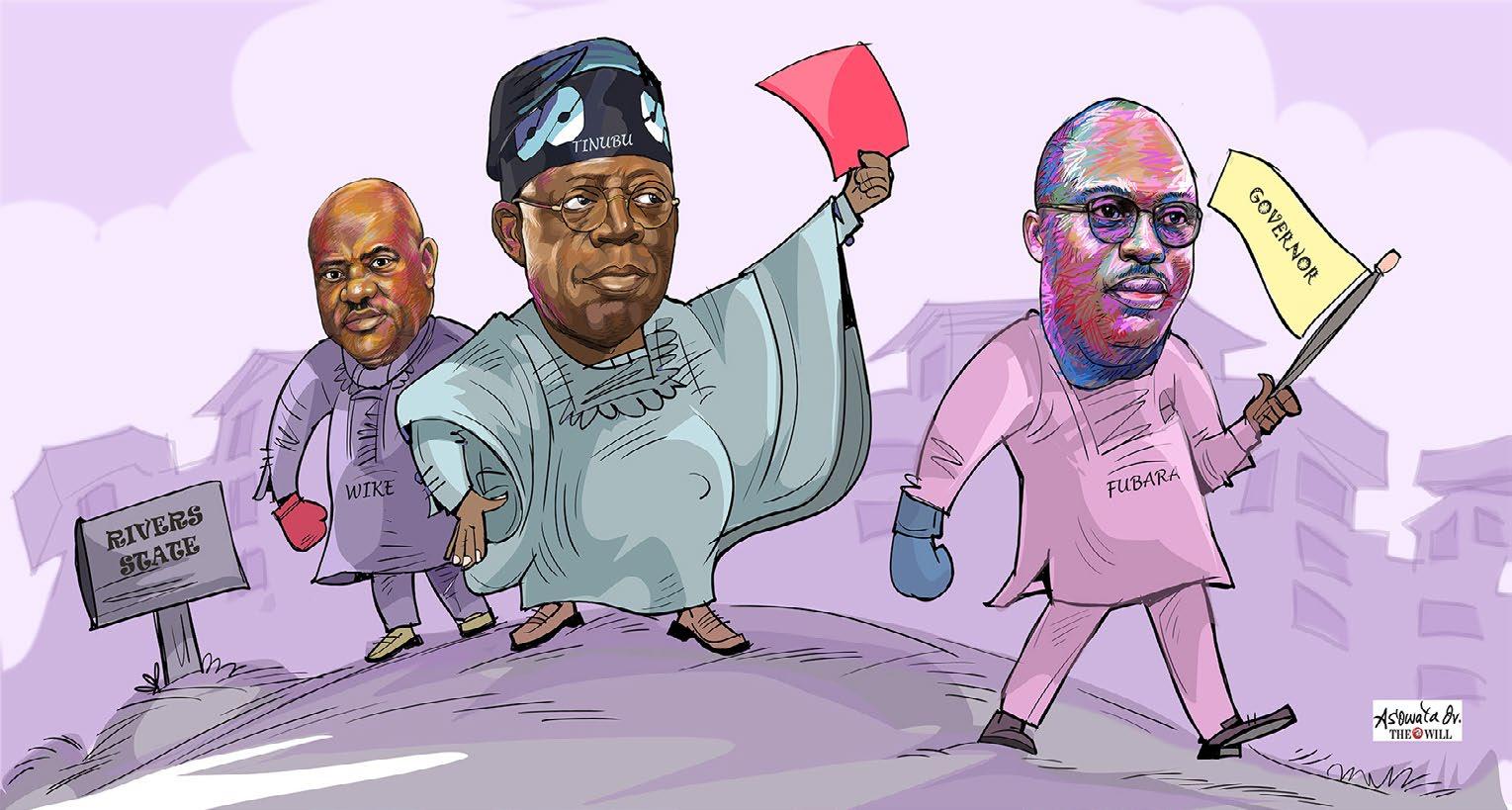
BY AMOS ESELE WITH OKIOMA AHERHOKE
Former President Goodluck Jonathan has joined other concerned Nigerians in speaking out against the removal of Governor of Rivers State, Siminalayi Fubara, and other elected officials, as well as the appointment of a Sole Administrator to take charge of the state, following the proclamation of emergency rule by President Bola Tinubu and the controversial approval by the National Assembly. Speaking at the Haske Satumari Foundation Colloquium in Abuja on Saturday, Jonathan warned that the suspension of the governor could taint Nigeria’s image image and seriously affect its attractiveness to foreign investors.
While explaining that he had resisted calls to speak out on the development so as not to heat up the polity, the former President said, “These actions by key actors in the executive and legislative arms of government paint the country in a negative light. The situation where an individual can dictate to the judiciary makes it difficult for anyone to have faith in the judiciary.”
“The situation in Rivers State reminds me of an Indian proverb: If somebody is truly asleep, you can wake them up easily. But if they are only pretending to sleep, waking them up becomes impossible. The key actors in Nigeria—the executive, the legislature, and the judiciary—know the right thing to do, but they are refusing to do it. They are pretending to sleep. Waking such people is extremely difficult, but they know the right thing.
“There is a clear abuse of office, power, and privileges across the three arms of government—the executive, the parliament, and the judiciary. And I always plead with our people to understand that whatever we do affects everybody. Sometimes, we make decisions thinking they do not impact us directly,” the former President said.
Details are emerging of how citizens of Rivers State are adjusting to the reality of the emergency rule shortly after the Sole Administrator, Vice Admiral Ibok-Ette Ekwe Ibas (retd), met with traditional rulers in the state on Friday and pledged to harness their wisdom and influence in de-escalating tension, while fostering unity and building
trust among the people. As part of his fence-mending measures, retired Admiral Ibas plans to meet with the Secretary to the State Government and Commissioners tomorrow, Monday.
THEWILL checks show that while most residents of the state are taking the new development in their stride, the majority of the Ijaw ethnic group are adjusting in a peculiar manner, no thanks to the sectarian and ethnic conflicts that often occur when the elite struggle for control of the state and access to power, unequal allocation of resources and economic survival amid insecurity and hardship in the country. They are miffed, like most other Nigerians, by the sheer illegality of a proclamation that sacked democratically elected government officials rather than deploying more security personnel to prevent breakdown of law and order.
Investigations show that two major strands of dissenters have emerged among the Ijaw over the matter. The first is driven by a sense of loss because Governor Siminalayi Fubara, a ‘son of the soil’ has temporarily been ‘intimidated’ out of office, while the other thinks that the whole affair offers vital lessons that must be leveraged for their betterment, going forward.
Uniting both groups is a common feature: Their perception that a major party in the dispute which later escalated to induce the declaration of emergency by President Bola Tinubu, was left unpunished. That party, in their consideration, is the Minister of the Federal Capital Territory, Nyeson Wike. For both groups, leaving Wike, who openly maligned the Ijaw ethnic group at a press conference held in Port Harcourt recently, unpunished, is a sad reminder of their insignificance in the Nigerian polity.
Census data from the Nigeria Population Commission recorded the Ijaw population at 5.3 million in 1991, making up 5.9 percent of the country’s 88.9 million people at the time. By 2006, their population had grown to 8.42 million, representing around 6 percent of Nigeria’s 140.4 million people. As of 2024, Nigeria’s Ijaw population is estimated at approximately 14.39 million, accounting for 6.1
percent of Nigeria’s 233.9 million people, placing them as the fourth largest ethnic group in Nigeria. They are the largest ethnic group in Nigeria’s Niger Delta region.
“The proclamation of emergency rule by President Bola Tinubu is a well-rehearsed plot to provoke the Ijaws as there is no provision in the 1999 Constitution as amended that provides for the President to suspend an elected governor and members of the State House of Assembly,” Central Zone Chairman of the Movement for the Survival of Ijaw Ethnic Nationalities in the Niger Delta, Comrade Patrick Zidougha said in an interview with THEWILL on Friday in Yenagoa, capital of Bayelsa State.
He advised the Ijaw to react to the situation with caution as he thinks there is a grand plot to arrest and detain Ijaw leaders on trumped up charges. Zidougha claims that the emergency rule imposed on Rivers State is nothing but oppression, by other means, of the Ijaw and a way of testing the waters before probably extending the same treatment to Bayelsa State just to silence the opposition-controlled states for 2027.
Asked for his reaction to Wike’s comments on the Ijaw, he said, “It is very demeaning and unbecoming of Wike to call the Ijaw the minority of the minorities in the Niger Delta and that they cannot produce a governor in Delta, Edo, Rivers and Akwa Ibom States, but only in Bayelsa State which is an Ijaw homogeneous state.
“I wish to remind Wike, if his memory has failed him, to search the archives and realize the frontal role the Ijaw played in championing the creation of Rivers State which brought to the limelight, His Royal Highness, Alfred Pappapreye Diete Spiff, who is the first military Administrator of Rivers State, followed by Chief Melford Okilo as first civilian governor, then Chief Ada George, all of them Ijaw sons that ruled old Rivers State.”
Wike had said in that press conference, “The Ijaw do not constitute the majority in the Niger Delta. People must speak out the truth.





Heaven will not fall. What nonsense. Everyday people will just wake up and say Ijaw this and that. In Akwa Ibom, Ijaw can’t be governor. In Delta State, Ijaw is the minority of the minorities. “The only place where an Ijaw man can become governor is Bayelsa State, not in Edo or Rivers states.”
Media Adviser to the FCT Minister, Mr Lere Olayinka, however, said the minister’s statement was twisted to serve a purpose, in addition to being wrongly seen as a party to issues that warranted the proclamation of emergency rule in Rivers State.
Speaking to THEWILL on Friday, he said that when it became clear that Wike was misunderstood, he provided further clarification of his statement on the Ijaw at a recent reception in Rivers State. He said, “Was it FCT Minister Nyesom Wike that demolished the House of Assembly Complex.? Was it Wike that set fire on the House of Assembly complex? Was it Wike that was using three members of the Assembly to pass a budget? Was it him that refused to pass a budget in accordance with the Constitution of Nigeria? When the President intervened and everybody agreed to the terms, was it Wike that left the meeting and started calling the President a meddlesome interloper? Was it Wike that addressed the youth and said he would tell them what to do at the appropriate time? And when he told them what to do, they started bombing pipelines.”
Reminded that the report on the bombing of pipelines may have been incorrect as the Nigeria National Petroleum Company Limited, NNPC, disclosed the so-called bombing of its facility was just a flare that was immediately corrected, while the bombed pipeline in Ogoniland has been running full stream, he disagreed, saying, “No, no, no, a major pipeline was bombed and it was fixed.”
On the statement that allegedly maligned the Ijaw, Olayinka said that Wike clarified the statement at a reception held in his honour last Saturday. “He said the Ijaw on their own cannot produce governors in any state they are present except through a synergy with other ethnic groups, everybody working together. That is why he said it was only possible because they were in a majority. He also said the Ijaws should rise up against those giving them bad names and stop claiming an identity that what they are only good at is militancy. There are professors of Ijaw descent, just as they are in the armed forces.”
Olayinka refuted claims that his boss snubbed traditional rulers and stakeholders who contacted him for peaceful resolution of the leadership crisis in the state and declared, “If they came to see him, to do what? After all, when the President intervened and everybody signed an agreement to a peaceful resolution, who were those that said the President was a meddlesome interloper? Look, if you go to war and you lose, you have lost every right to sit at the negotiation table. That is the reality the governor should have faced. After the Supreme Court judgement, he should have gone low and done the needful. He had no option.”
Furthermore, he debunked a viral social media picture of the FCT Minister with the Sole Administrator of Rivers State, Vice Admiral Ibok Ibas, saying the notion that the former influenced the latter’s appointment is ridiculous. “Haven’t you also seen the Admiral’s pictures with former governor Rotimi Amaechi, with former Lagos Governor Akinwunmi Ambode and many others? When he was in the military, the Admiral paid visits to state governors. That was when Wike was a governor,” he said.
Reacting to the claims that the Governor Fubara’s negligence warranted the proclamation of emergency rule, Nelson Chukwudi, Chief Press Secretary to Governor Fubara, absolved his principal of any dereliction of duty.
He said, “It is clearly untrue that somebody who has all the while preached peace and non-violence even in the face of extreme provocations, would be ‘telegraphing attacks on oil pipelines’ and would be breaching the peace he has worked so hard to promote and sustain for the good of the people of the state.
“There was also another claim that after demolishing the Hallowed Chambers of the State House of Assembly on Moscow Road in Port Harcourt, the governor did nothing to rebuild the facility, whereas the project is 80 percent completed.”
While maintaining that the presidency was not properly briefed about developments in the state to guide decision making, he blamed Wike for triggering the reaction of stakeholders in the Niger Delta, especially elders, chiefs, women, Ijaw National Congress, its youth wing, IYC, as well as militants, among others, by remarks in a live media chat, during which he dismissed the Ijaw as a “minority of the minorities’ and powerless in the Nigerian polity.
Nonetheless, THEWILL checks show that there are two divides
among the Ijaw that share different views on the development. Irritated by what it deems to be a deliberate insult to the Ijaw like the invasion of Odi in Bayelsa State in 1999 by the armed forces on the orders of the Federal Government, one side reasons the Ijaws should prepare for the worst.
Odi is an Ijaw enclave that was invaded and destroyed by armed forces after the community failed to heed a Federal Government directive to stakeholders to fish out the killers of 12 policemen during a protest over rights to oil and gas resources by militants operating in the area. Over 900 persons were killed in the attack and almost all houses were razed by the rampaging soldiers who claimed they were ambushed by militants on their way to the town.
harmonisation of aspirations. Though the fourth largest ethnic group in Nigeria, Ijaws are currently scattered along many coastal states in the country, such as Edo, Akwa Ibom, Delta, Ondo and Cross River and Rivers, apart from Bayelsa which they populate by 95 per cent. They also have a sizeable presence in fishing communities of Benue and Kogi States.

When reminded that both events are dissimilar, an influential Ijaw leader who asked to be anonymous argued that in a situation where there are unevenly matched parties in a dispute, the stronger can go to any length to exert its price.
“There is no smoke without fire. For the FCT Minister to talk down on our people in such a disparaging manner without being called to order and then the president goes ahead to illegally and unconstitutionally sack elected officials, is enough warning,” the leader said. More alarming to this side of the divide is what they perceive as the silence of prominent Ijaw leaders in the face of Wike’s “provocative verbal attack.”
Prominent Ijaw political leaders, like ex-President Goodluck Jonathan, Governor Douye Diri, Senator Seriake Dickson, Minister of State for Petroleum, Heineken Lokpobiri, his predecessor, Timipre Sylva and militant ‘Generals’ should have responded to Wike’s comments, the person said.
He commended the President of INC, Prof Benjamin Okaba for providing leadership to guide the Ijaw. Last Thursday Okaba disclosed that the proclamation was tantamount to a slap on the face of the Ijaw.
“There are clear facts all over the place and I believed President Tinubu ought to have had a look at them all. I stated that it’s unfair. So, why are you going to fire Sim Fubara and abandon Wike? Eliminating all those involved is the best course of action. Wike must be fired, along with all other federal appointees from the state, because if they are not fired, they will use their positions to provoke further problems and carve out more favourable roles for themselves,” Okaba said.
In a sharp contrast, the other side of the divide views the unfolding events as a hard lesson for the Ijaw ethnic group. “There should be a paradigm shift in defending the strategic interests of the Ijaw nation, going forward. According to this group, the era of ‘Barasin Tamaran Preye Yahaa’ (Leave everything to God) is gone. This group is coordinated by the Ijaw in the Diaspora with sufficient experience of the political dynamics back home, having schooled and worked in Nigeria.
A lawyer among this group, who once worked in a leading law practice in the country before relocating to the United States, and preferred anonymity, canvassed for unity amongst all Ijaws and
“
There is a clear abuse of office, power, and privileges across the three arms of government—the executive, the parliament, and the judiciary. And I always plead with our people to understand that whatever we do affects everybody. Sometimes, we make decisions thinking they do not impact us directly
Speaking in a nationwide broadcast on Tuesday evening, President Tinubu invoked Sections 305 of the 1999 Constitution (as amended) to suspend the Rivers State Executive and the legislature for an initial period of six months. The president appointed Vice Admiral IbokEtte Ibas (Retd) as Sole Administrator of the state. The controversial proclamation has drawn nationwide condemnation for its illegality and unconstitutionality with the Nigerian Bar Association and several constitutional lawyers urging the president to rescind his action.
Justifying his proclamation, the President said, among others that, “It is public knowledge that the Governor of Rivers State for unjustifiable reasons, demolished the House of Assembly of the state as far back as 13th December 2023 and has, up until now, fourteen (14) months after, not rebuilt same. I have made personal interventions between the contending parties for a peaceful resolution of the crisis, but my efforts have been largely ignored by the parties to the crisis. I am also aware that many well-meaning Nigerians, leaders of thought and patriotic groups have also intervened at various times with the best of intentions to resolve the matter, but all their efforts were also to no avail.”
The National Assembly has since ratified the proclamation in a controversial voice vote that lacked transparency nor met the requirement of the constitution.
AGGRIEVED PARTIES HEAD TO COURT
Meanwhile, three parties have gone to court to challenge the removal of the governor, deputy and state legislature. The first is by a lawyer, Daniel Wariboko, who as a sole plaintiff, filed a suit marked FHC/CS/550/2025, at the Federal High Court in Abuja on March 20, 2025. The suit, commenced through an originating summons, was filed on behalf of the electorate. Wariboko is suing for himself and other registered voters in Rivers State.
The President, President of the Senate, the Speaker of the House of Representatives, the National Assembly and the Attorney-General of the Federation (AGF) are listed as the 1st to 5th defendants in the case. Wariboko wants the court to determine whether, under Section 305 of the Constitution of the Federal Republic of Nigeria (1999, as amended), a dispute between a governor and a state House of Assembly constitutes grounds for declaring a state of emergency; whether provisions of Section 305 of the Constitution, the 1st defendant has power to suspend a democratically elected executive and legislative arm of government and appoint a sole administrator to run the affairs of state where there is an elected governor, deputy and members of the assembly.
A second lawsuit is on the way and this time, from the main opposition party, the Peoples Democratic Party, PDP, Fubara’s party. The Governor of Oyo State, Seyi Makinde, made this disclosure at the weekend.
The governor said, “I am glad that our great party, the PDP, is demonstrating the needed strength and leadership. The PDP Governors’ Forum arose from an emergency meeting where we unanimously decided to challenge the actions of President Tinubu in a court of competent jurisdiction. We cannot fold our hands and watch the democracy we built for almost three decades be trampled upon.” The third group is led by leaders of the Ijaw Youth Council (IYC), Eastern Zone. They have filed a lawsuit against the Federal Government of Nigeria at the Community Court of Justice of the Economic Community of West African States (ECOWAS Court) in Abuja, challenging the declaration of a state of emergency in Rivers State.
In a suit dated March 20, 2025, and marked ECW/CCJ/APP/18/25, the applicants are seeking an order from the regional court to nullify the suspension of elected officials and reinstate democratic governance in the state. The plaintiffs, Comrade Harry Ibiso and even others, acting on behalf of the Eastern Zone of the IYC, also want the court to set aside all actions, policies, and directives issued by the sole administrator appointed by President Tinubu on March 18.
Citing Articles III and IV of the ECOWAS Court’s supplementary protocol, Article II of the Court’s Protocol, and Article 33 of its rules, the applicants argued that President Tinubu, as an elected leader, lacks the constitutional authority to remove or suspend an elected governor.

Governor of Lagos State, Mr. Babajide Sanwo-Olu (m); Ambassador of Tunisia to Nigeria, Mr. Mohsen Antit (3rd l); Rep. of Tunisia Africa Business Council, Mr. Chris Eruba (2nd l); Permanent Secretary, Ministry of Transportation, Mr. Wale Musa; Special Adviser to the Governor on Tourism, Mr. Idris Aregbe (r) and others, during a courtesy visit, at the Lagos House, Alausa, Ikeja on March 20, 2025.
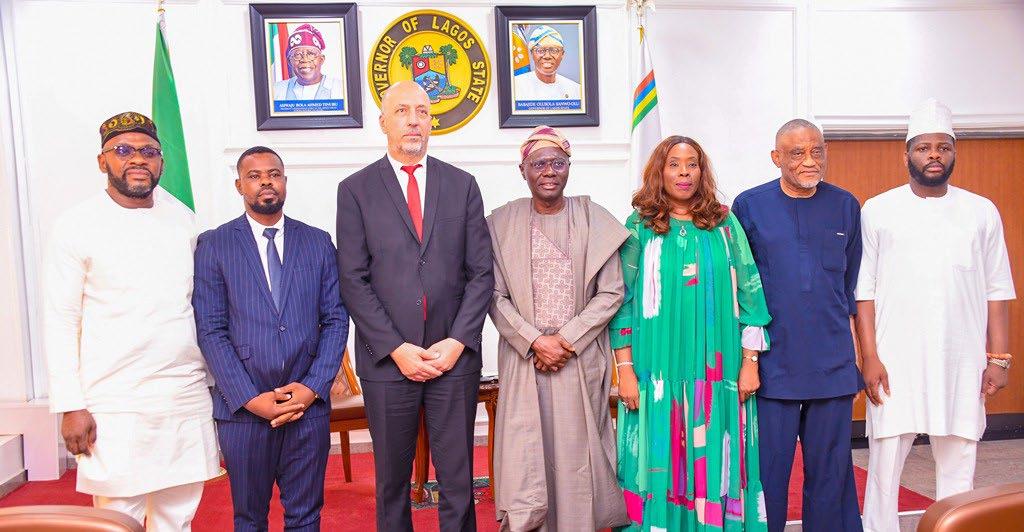
BY FELIX IFIJEH
Rivers State Administrator, Vice Admiral Ibok Ete Ekwe
Ibas (rtd), has met with traditional rulers in the State, pledging to harness their wisdom and influence in deescalating tension, while fostering unity and building trust among the people. Ibas made the pledge on Friday, during a meeting held at the Banquet Hall of the Government House in Port Harcourt. The meeting brings to three, separate groups that the Administrator had so far met with since assuming duties on Thursday.
The retired naval chief said his meeting with the traditional rulers was necessary because they are mediators of conflict and can attest to the regrettable negative impact that the intractable political crisis had on the maintenance of law and order in the State.
Warning against lawlessness in any part of the State, Ibas charged the traditional rulers to work with him to promote dialogue, understanding and reconciliation in the various communities. The Chairman of Rivers State Traditional Rulers Council, Eze Chike Amadi Worlu-Wodo, commended Ibas and charged him to act as a peacemaker that must sufficiently address the conflict that had lingered for a while.
Meanwhile, the Rivers Administrator, has directed the commencement of processes for the payment of salary of Local Government workers.
Ibas gave the directive to the Heads of Local Government Administration and the leadership of Nigeria Union of Local Government Employees (NULGE) during a meeting at Government House in Port Harcourt on Friday.
THEWILL reports that local government workers in Rivers have yet to receive their February 2025 salary.
However, Ibas explained that the development was occasioned by recent Supreme Court judgement, which annulled the October 5 Local Government Councils elections. The apex court also stopped the Federal Government from releasing monthly allocation to Rivers State Government.
and offer them a more positive, inclusive and transformative leadership. “This is the mandate I have accepted and it is the standard I expect from all of you. “To this end, I hereby direct further that all Local Government Areas furnish my office with wage bills by way of briefing through the office of the Head of Service.
“This will enable me to acquaint myself with the situation as this will enable me to deal with such matters. All such submissions should be supported with relevant documents to provide clarity and ensure accuracy.
“My administration will not tolerate any form of recklessness,
abuse of office or misuse of public funds. Henceforth, there must be accountability and value for money. “I have just six months, but we must ensure that the people of Rivers State deserve to see how their money is used and it is our duty to ensure that every kobo is accounted for.
“We will ensure that every decision we make, every policy we implement and every action we take is guided by the principles of transparency, accountability and service to the people.
“I urge you to embrace these principles and make them the cornerstone of your leadership in your respective local government areas.”
BY KAJO MARTINS, MAKURDI
Benue State governor, Rev. Fr. Hyacinth Alia, has called on the Federal Government to ban open grazing in the country as a panacea for peace between herders and farmers.
The governor, who said this during the Benue Livestock Summit 2025 in Makurdi, with the theme, “Re-imagining the future of Livestock production in Nigeria for economic growth and self sufficiency”, called on the federal government to rather promote ranching nationwide.
He pointed out that agriculture in the past was dominated by crop production despite the contribution of livestock farming, assuring that his administration is committed to changing the narrative through focus on livestock, among others.
Commending the Minister for his involvement in the Summit, the Governor called on him to assist in attracting foreign direct investment in livestock in the state, expressing optimism that the summit will enrich promotion of livestock development, which he noted is a key driver to economic growth of the state and nation.
opportunities for the youths and build bridges of peace among stakeholders. According to the Minister, for governor Alia’s administration to have organised the livestock summit of this nature is a clear indication of keying into the Renew Hope Agenda of president Bola Tinubu.
Earlier, the Director General, Bureau of Livestock and Development and trans boundary animal diseases control, Dr Aondoakaa Asambe, noted that the gathering was not just an event—it is a milestone in the collective quest to reposition Nigeria’s livestock industry for economic growth and selfsufficiency.
“For us in Benue, this underscores our unwavering commitment to harnessing the vast potential of the livestock sector and transforming it into a key driver of economic growth, job creation, and food security”, he stated.
The Director General described the livestock sector as a critical component of Nigeria’s economy, contributing significantly to GDP, employment, trade, agribusiness, and food production.
He, however, disclosed that the withheld allocations have been released. He said, “I sincerely feel the pain of these workers, many of whom have endured months of financial strain.
“Let me assure that the withheld allocations have now been released, and I hereby issue a directive that all the necessary steps be taken to ensure that these salaries are paid with no further delay. “As leaders we must feel the pains of our people
He pledged to establish ten feed mills in each of the three senatorial districts in the state, as well as hatchery, arguing that the absence of ranches in the country has slowed down livestock business.
In his remarks, the Minister of Livestock Development, Alhaji Idi Mukhtar Maidi, said livestock will remain forever unlike other mineral resources, noting that such will create job

He, however, said despite its enormous potentials, it continues to face numerous challenges, including limited access to finance and market linkages; inefficiencies in production and processing.
He, therefore, called for support and partnerships that will shape the future of livestock production in Benue State and Nigeria.



Executive Chairman, Federal Inland Revenue Service (FIRS), Zacch Adedeji (3rd r); Leader of West African Tax Administration Forum (WATAF) in Burkina Faso, Eliane DJIGUEMDE (m); Executive Secretary, WATAF, Jules Tapsoba (3rd l); and others, during the WATAF Country Correspondents conference and training for Heads of Communications Departments in Abuja on March 18, 2025.

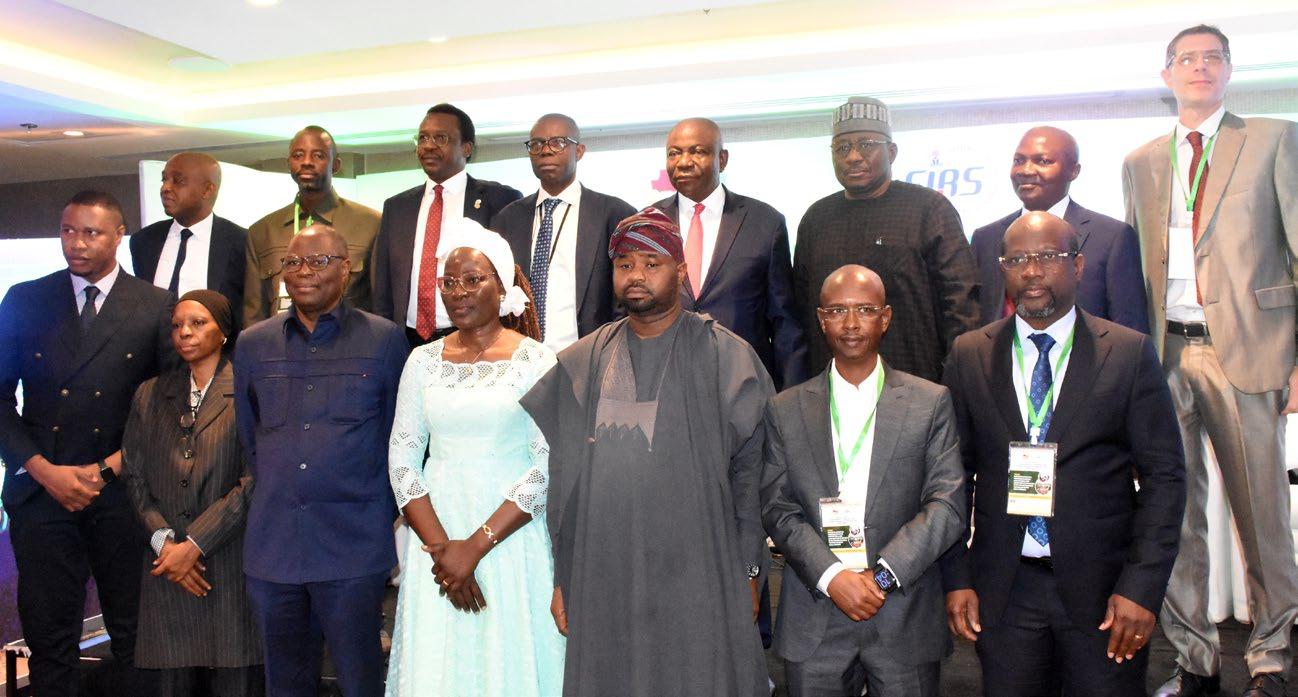
BY FELIX IFIJEH
The National Working Committee (NWC) of the Peoples Democratic Party (PDP) has commended the Supreme Court for its judgement on the legal tussle over the position of National Secretary of the party.
THEWILL reports that the apex court, on Friday, March 21, held that the issue of Party leadership positions, including that of the National Secretary of the PDP, is entirely an internal affair of the political Parties, which the courts have no jurisdiction.
The court declared the position while ruling in an appeal brought before it by Senator Samuel Anyanwu to challenge the concurrent judgements of the Federal High Court and the Court of Appeal, Enugu Division, which declared Sunday UdeOkoye as National Secretary of the PDP.
THEWILL recalls that Anyanwu was National Secretary of the party before he contested for the 2024 gubernatorial election in Imo State. He was subsequently replaced by Ude-Okoye.
Reaffirming Ude-Okoye as the authentic national Secretary of the PDP, the party, in a statement signed on Friday by its National Publicity Secretary, Debo Ologunagba, said, “Today’s judgement of the Supreme Court reaffirms the standing position of the Party and emphatically settles the emergence of Rt. Hon. SKE Udeh Okoye as the substantiative National Secretary of the PDP having been duly nominated, endorsed and ratified through the internal mechanism of the PDP statutory Organs and bodies
BY FELIX IFIJEH
in line with provisions of the PDP Constitution (as amended in 2017)”. The NWC explained that “at its 576th meeting held on the 11th of October, 2023, directed the South East Zonal Executive Committee to nominate a replacement for Senator Samuel Anyanwu upon Senator Anyanwu’s nomination as the governorship candidate of the PDP to contest the November 2023 Governorship election in Imo State.
“Consequent upon the directive of the NWC, the South East Zonal Executive Committee at its meeting held on the 20th of October 2023 passed a resolution approving the emergence and forwarding of the name of Rt. Hon. SKE Udeh Okoye to the NWC as the National Secretary of the Party.
“Accordingly, the NWC at its 577th meeting held on 7th of November 2023 pursuant to its powers under the PDP Constitution, duly received, deliberated upon, accepted and approved the emergence of Rt. Hon. SKE Udeh Okoye as the National Secretary of the Party, which appointment has also since been endorsed by relevant Organs and bodies of the PDP including the Board of Trustees (BoT), South East Zonal Caucus, the PDP Governors’ Forum and officially communicated to the Independent National Electoral Commission (INEC) and the general public.”
It urged all patriotic members of the PDP to remain united as “we work together to move our great Party forward.”

Two-time heavyweight boxing champion George Foreman has died at the age of 76. His family confirmed his passing in a statement on Friday, revealing that the boxing icon died peacefully on March 21, 2025, surrounded by loved ones. Foreman, a dominant force in the heavyweight division, first captured the world title in 1973 with a stunning second-round knockout of Joe Frazier, dropping the champion six times in what remains one of the most brutal victories in boxing history. More than two decades later, he made history again, reclaiming

the title at the age of 45 by knocking out Michael Moorer in 1994—becoming the oldest heavyweight champion in history. Beyond the ring, Foreman’s life was marked by transformation. Following a shocking defeat to Jimmy Young in 1977, he retired from boxing and became a minister, dedicating his life to religion. However, financial struggles brought him back to the sport a decade later, setting the stage for his improbable comeback and eventual business success with the now-famous George Foreman Grill.

BY ABDULLAHI YUSUF
Kano State Government has approved a 25 to 35 percent salary increase for academic and non-academic staff of tertiary institutions in the state. The state Commissioner for Information, Comrade Abdullahi Wayya, disclosed this while addressing newsmen on the outcome of the State Executive Council meeting, adding that the salary increase takes effect from March 2025.
“The academic staff will be receiving a 25 percent increase and the non-academic staff will benefit from a 35 percent increase”, Wayya said. He said the decision was taken during the council’s meeting in view of the crucial role of the staff in promoting education in the state.
He said the adjustments underscored the determination of the government to improve conditions of workers and strengthen the education system under its state of emergency on education policy. The commissioner also announced that the executive council had granted the approval of about N3.4 billion for the execution of various developmental projects across the state.
“To improve the state’s electrical infrastructure, the Council approved N612.4 million for converting external electrical systems to an underground network at Government House and relocating power lines along Ahmadu Bello Way.”
He noted that N148.9 million was allocated for road maintenance at the School of Technology to be carried out by the Kano Road Maintenance Agency (KARMA). “Additionally, N367.9 million was approved as an advance payment for expanding Zaria Road, from Silver Jubilee to Dantata & Sawoe main yard.
“The council also approved N612.4 million for converting external electrical infrastructure to an underground system at Government House and relocating power lines along Ahmadu Bello Way.
“Further, N184 million was released for two ambulances for the Government House Clinic and Nuhu Bamalli Maternity Hospital, respectively.” The Information Commissioner also added that N348 million was allocated to settle energy bills to KEDCO for November and December 2024.
“N662 million was released for feeding students in boarding schools during the 3rd to 5th weeks of the current academic term.
“N100 million was approved for the Nigeria Union of Pensioners to host its Quadrennial Delegates Conference in Kano.
“The Council has also approved the re-engagement and reopening of the Kiru Reformatory Institute to rehabilitate and reintegrate troubled youths into society. In a progressive move towards inclusivity, a new Department for People with Disabilities has been created under the Ministry of Women, Children, and Disabled”, he added.
Commandant of the Army War College, Major. Gen. Y M Alkali, (m), Chief of Military Intelligence, Maj Gen. TB Ugiagbe, 3rd r, Director of Administration and Logistics Brig. Gen. J N Garba, (2nd r), Director of Coordination, Brg. Gen AU Abdul during a courtesy visit Gen Alkali to the Intelligence Headquarters in Asokoro, Abuja, at the weekend.
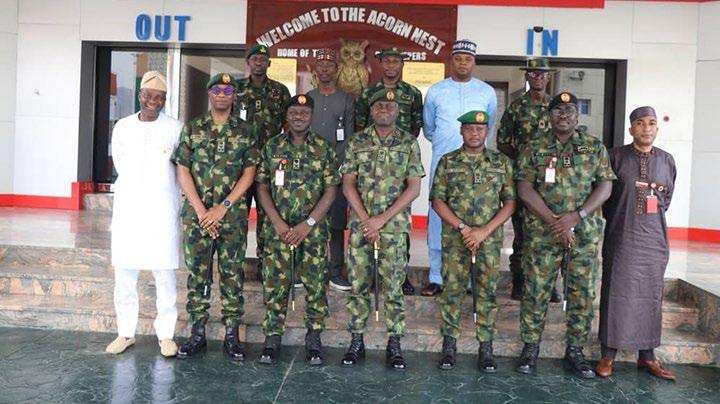
BY AMOS OKIOMA
Bayelsa State Government has appealed to the people of the state to make themselves available for the ongoing oral cholera vaccination (OCV) as a preventive measure against the communicable disease.
Governor Douye Diri, who was represented by his deputy, Senator Lawrence Ewhrudjakpo, made the appeal at the weekend during the flag-off of cholera vaccination campaign by the World Health Organisation (WHO) at the Government House, Yenagoa.
The governor, who said the vaccines were safe to boost their immune systems, expressed gratitude to WHO for its collaborative efforts with the state government in addressing health issues in the state.
According to him, it was as a result of the proactive measures and prompt response by the state government and all stakeholders in the health sector that the impact of outbreak of epidemics in the 6 states in the South-South zone was not felt in Bayelsa State.
He also directed the Commissioner for Information, Strategy and Orientation, Mrs Ebiuwou Koku-Obiyai, to create the necessary awareness about the need for the cholera vaccination as part of efforts to promote healthy living.
His words: “l encourage Bayelsans and residents to go out en masse to get vaccinated with the Oral Cholera Vaccine because it is safe and has zero side effects.
“I commend Hon. Moses Marlon, member representing Southern Ijaw Constituency 3, and his colleague, Hon Bonnie Ayah, representing Southern Ijaw Constituency 1, who have demonstrated leadership by taking the vaccine.
“We urge local government council chairmen to also go to their headquarters to take the vaccine to show that the vaccine is safe. If you take this vaccine, for 3 years, you will not have cholera.
“Our health system is so resilient, robust and proactive that despite those episodes of the six layers of epidemics
we had in the state, no life was lost in our state. But unfortunately, in other states, lives were lost.
“And so, we want to thank WHO, one of our partners, who has been supporting our health system. We are happy that WHO has continued to partner us in every inch of our response to any epidemic.”
In his remarks, the Commissioner for Health, Prof. Seiyefa Brisibe, expressed the government’s commitment to strengthening public health emergency response systems in the state.
Prof. Brisibe said WHO has released 7,000 doses of the cholera vaccine to cover Southern Ijaw and Nembe Local Government Areas to kick-start the vaccination in the state.
He stressed the need to increase the uptake, noting that the state has not recorded any side effects from all the vaccinations including the cholera and the ongoing malaria vaccination exercise.
The Health Commissioner also applauded the Governor Diri-led administration for its intervention through periodic medical outreaches to save lives across communities in the state.
Also, the State Coordinator of the World Health Organisation, Dr Marcus Oluwadare, described the state’s response to health emergency situations in the state as very impressive.
He revealed that Bayelsa is the first state in the country to receive the Oral Cholera Vaccines (OCV), which he said is safe for children above one year of age.
Highpoint of the flag-off ceremony was the administration of the oral vaccine on the Deputy Governor, Senator Lawrence Ewhrudjakpo, the lawmaker representing Southern Ijaw constituency Three, Hon Moses Marlon, his constituency One colleague, Hon. Bonny Ayah, Information Commissioner, Mrs Ebiuwou Koku-Obiyai and other top government functionaries.
N149.5bn
FROM KAJO MARTINS, MAKURDI
The Benue State Executive Council has approved more infrastructure projects to transform the state economy and improve the lives of its citizens.
At its 4th meeting for 2025, held at the Government House, Makurdi, the Council approved the immediate payment of N1,569,583,932.17 to CGC, a Chinese company that constructed the Otobi/Otukpo and Katsina-Ala Water Works about 10 years ago.
The Council also directed the State Ministry of Water Resources, Environment, and Climate Change, to invite CGC to commence the rehabilitation of the facility and restore water supply in Otobi, Otukpo, and their environs.
It also approved several other key projects, including the extension and dualisation of the Wurukum-Airforce Base Road, the upgrade of the Mbawuar to Bako-Negher and Spur to Mbaakon Road, the rehabilitation and upgrade of the Deputy Governor’s Lodge, and the reconstruction of the Assembly Complex and Clinic.
The extension and dualisation of the Wurukum-Airforce Base Road, which was approved at a cost of N68,329,287,647.57, is expected to improve transportation and boost economic activities in the area.
The project, which will be handled by M/S Bahaus Global Investment Nigeria Ltd., includes the construction of a 5-span bridge at Mu.
The upgrade of the Mbawuar to Bako-Negher and Spur to Mbaakon Road, which was approved at a cost of N73,920,604,234.52, will improve road safety and reduce travel time for commuters, and the project will be handled by M/S Bahaus Global Investment Nig. LTD.
The rehabilitation and upgrade of the Deputy Governor’s Lodge, which was approved at a cost of N1,136,469,250.83, will provide a conducive environment for the deputy governor to perform his duties, while the project will be handled by Welltime Limited.
The reconstruction of the Assembly Complex and Clinic, which was approved at a cost of N4,593,087,831.76, will provide a modern and functional complex for the state assembly and a clinic for the benefit of lawmakers and staff will be controlled by Gerewa Global Engineering LTD.
Relatedly, the council received a letter of approval from the Federal Government for the establishment of an infectious disease control centre at Vandeikya Local Government Area, following a request by Governor Alia, who has expressed concern about cases of infectious diseases in the state.



L-R: Former Secretary to the Government of the Federation, Babachar Lawal, former Vice-President, Atiku Abubakar, media aide to Peter Obi of the Labour Party, Tanko Yinusa and former Governor of Kaduna State, Nasir El-Rufai during the Coalition of Political Leaders press conference on the proclamation emergency ruling in Rivers State, in Abuja on Thursday March 20, 2025

BY FELIX IFIJEH
AFederal High Court sitting in Lokoja, Kogi State, has restrained the Independent National Electoral Commission (INEC) and its agents from receiving, accepting, or acting on any petition allegedly containing fictitious signatures for the recall of Senator Natasha Akpoti-Uduaghan.
THEWILL recalls that controversy erupted during Senate plenary on February 20 following a dispute over seating arrangements, which led to a heated exchange between Senator Natasha and Senate President Godswill Akpabio. The Kogi lawmaker had accused Akpabio of persistent sexual advances, claiming that his hostility towards her stemmed from her refusal to entertain them. The senator was subsequently suspended for six months over allegations of misconduct and violation of Senate rules. Her suspension also included the withdrawal of her salary, security details, and a ban on accessing the National Assembly premises or identifying herself as a senator.
Amid reports of a plot to recall her, concerns were raised over the
credibility of the process, which was allegedly orchestrated by a close ally of Senate President Akpabio.
In an attempt to block the recall, five registered voters from Kogi Central Senatorial District, including Anebe Jacob Ogirima, filed an ex parte application before the Federal High Court in Lokoja, seeking an order to prevent INEC from acting on the purported recall petition. Ruling on the application on Thursday, Justice Isa H. Dashen issued an interim injunction restraining INEC, its staff, and agents from receiving or acting on any petition containing fictitious signatures and names of purported constituents.
“The order also restrains INEC from conducting any referendum upon such a petition for the purpose of initiating a recall process of Senator Natasha Akpoti-Uduaghan, pending the determination of the Motion on Notice,” the court ruled.
The case was adjourned until May 6, 2025, for a report on service and further proceedings.
BY SEGUN AYINDE, ABEOKUTA
The Ogun State government has issued a flood warning for 16 out of its 20 local government areas, urging residents in vulnerable communities to relocate ahead of the anticipated heavy rainfall this year.
Ebonyi State Governor, Francis Nwifuru, has granted amnesty to 51 former members of a vigilante group arrested at the height of the crisis between Ekoli Edda community in Edda Local Government Area of Ebonyi State and their neighboring Egbor/Urugbam village in Cross River State.
The amnesty, which was granted at the 134 Battalion of the Nigerian Army in Ezillo, where the ex-vigilante members had undergone rehabilitation, was accompanied by an empowerment package from the state government. Nwifuru announced a financial support package of N2 million each for the 51 former vigilantes, amounting to N102 million, as part of efforts to reintegrate them into society.
Speaking at the event, the governor explained that the Ebonyi State government had engaged with the Nigerian Army and other key stakeholders before reaching a decision aimed at restoring peace in the area. He noted that the amnesty was necessitated by the willingness of the Ekoli Edda vigilante members to lay down their arms and embrace peace.

Commissioner for Environment, Ola Oresanya, who disclosed this on Thursday, said the prediction was based on data from the Nigerian Meteorological Agency (NiMET), which forecasts rainfall intensity between 965mm and 1,805mm across the state.
He listed high-risk areas, including Ijebu-Ode, Ota, Sagamu, Abeokuta, Ifo, and Ijebu-East, among others, stressing the need for residents to take proactive steps to avoid the dangers of flash floods. Oresanya assured citizens that the administration of Governor Dapo Abiodun remained committed to mitigating the impact of flooding through sustained interventions.
“Over the past five years, the state government has de-silted 988.3km of rivers, streams, and drainage channels. Additionally, 698m of concrete drainages and culverts of various sizes have been constructed to improve water flow and reduce flood risks,” he said.

He further revealed that efforts were ongoing to create additional tributaries for Ogun River and complete the dredging of Opa Aro River, with the first phase of work scheduled to begin in April.
“Already, the flood retention period in some affected areas has been reduced from an annual average of six weeks to three weeks in 2024. This is due to the approval granted by Governor Abiodun for the dredging of Opa Aro River as a pilot project to mitigate flooding in Isheri and its environs,” Oresanya added.
The commissioner also advised residents in Warewa, Isheri, Akute, Oke-Afa, Owa, Yemule, Ifara, Ebute Oni, Onihale, Makun, Iwopin, Ebute-Imobi, Ayede-Ayinla, Ifara, and Igele to relocate to safer locations before the peak of the rainy season.
He further cautioned motorists and pedestrians against crossing flooded roads, warning that building on natural water channels, indiscriminate waste disposal, and other environmentally harmful practices would only worsen the flooding situation.
Oresanya urged Community Development Associations (CDAs) to sensitize residents on flood prevention measures, emphasizing that everyone had a role to play in safeguarding lives and property.
Nwifuru stated, “The voluntary surrender of 8 mortar bombs, 29 AK-47 rifles, and 21 pump-action guns is a powerful act of faith in the possibility of a better future. “We are here to grant amnesty to 51 of our brothers, sons, fathers, and uncles who were caught in the web of a conflict that has brought pain, loss, and division among our people.
“Today is a moment of redemption, renewal, and hope. We gather not just as a government, but as a family united by a shared vision of peace, progress, and prosperity.”
The governor traced the root of the crisis to the Eastern Region Estate Investment (EREI) Farm Settlement, a project initiated during the administration of Dr. Michael Okpara to promote unity and economic development. He explained that years of policy inconsistencies, mismanagement, and fragmentation of the settlement across Abia, Ebonyi, and Cross River States fueled long-standing tensions. “The conflict escalated when the Egbor people of Biase Local Government Area in Cross River allegedly leased the NIFOR plantation—largely owned by the Ekoli Edda community—without proper consultation,” he said.
Nwifuru emphasised that the disarmament programme, spearheaded by the Nigerian Army in partnership with the Ebonyi State government, marked a historic turning point in the peace process.

BY FELXI IFIJEH
The process of recall launched by constituents of Senator Natasha Akpoti-Uduaghan was temporarily halted by a Federal High Court in Lokoja, the Kogi State capital on Thursday. The court granted an interim injunction preventing the Independent National Electoral Commission, INEC, from receiving or processing any petition aimed at recalling Senator Akpoyi-Uduaghan.
The ruling also restrains INEC staff, agents, and associates from acting on petitions allegedly containing fictitious signatures from members of Kogi Central Senatorial District.
The injunction will remain in effect until the court hears the Motion on Notice regarding the matter. According to court documents made public on Friday, March 21, the order was granted following an ex-parte application for an interim injunction.
The application was supported by an Affidavit of Extreme Urgency, sworn to by Anebe Jacob Ogorima and four other registered voters from Kogi Central. The case was presented by Smart Nwashimere Esq, of WestIdahosa, SAN & Co presented the case before the court. Senator Akpoti-Uduaghan, has said she is not bothered about the attempts to have her constituents recall her from the Senate.
Also, her party, Peoples Democratic Party accused the ruling All Progressives Congress (APC) of sponsoring the recall process, insisting that it will fail. Meanwhile, Ebira indigenes, a day earlier, had condemned in strong terms, insinuations that the recall process against the lawmaker was not endorsed by the majority of the electorate in the area.
The indigenes, across the five local governments areas that make up Kogi Central Senatorial District, said they had resolved to bring the embattled Senator back home, adding that the embarrassment she had caused the senatorial district had, unfortunately, assumed an “international dimension.”
This stand was taken in a statement jointly signed by the President and Secretary of the Kogi Central Elites Forum (KCEF), Alh. Ibrahim Abdulazeez Ibrahim and Prince Akerejola Johnson of Ogori/Magongo LGA, respectively, on Thursday.
The constituents told Nigerians to disregard the deliberate mischief by the camp of the Kogi Central Senator, suggesting that people were deceived to come out for the recall exercise.
“No one is sponsoring this recall. Our people are largely united on this cause. From the history of Ebiras, you know we cannot be deceived. What she has done has been mainly propaganda. Even some of us that supported her on social media then are no longer with her. We cannot trade the integrity of the state and Nigeria for the selfish, juvenile tendencies of a Senator.”A matter as simple as not taking an assigned seat in the Senate should not be one that would warrant a “sexual harassment” national embarrassment of this nature, especially where all evidences point to blackmail. This is not who we are as Ebiras,” the statement said.
On the issue of INEC disclaiming the exercise, the constituents said the response was misconstrued. “INEC has no official role until after this signature collection phase. We are the ones that are doing the recall, the petitioners. We have to ensure that the required threshold is met before formally presenting it for verification. This is where INEC comes in,” the

indigenes noted. They urged the public to disregard any mischievous interpretation of the recall process, saying politicians would always release statements based on their leanings and selfish interests.
“For us as Ebira people, we are determined to bring Senator Akpoti-Uduaghan back home. While she is at home, she may learn the rudiments of representing her constituents better.
“Ordinarily, we would never have allowed anyone to intimidate our daughter if she was on her right. But in this particular instance, she disrespected the Senate of the Federal Republic of Nigeria, which has clear rules and went on to introduce slants that have never been heard of in the history of the Senate.
“We investigated and we know the truth. Senator Akpoti-Uduaghan should come home and learn the art of law making. It is not about content creation like many people have said,” the Kogi Central constituents said.
Recall that the National Assembly has been hit by allegations of sexual harassment against Senate President Godswill Akpabio after Senator AkpotiUduaghan was suspended for six months by the Senate for flouting rules.
Womanifesto, a coalition advocating for gender equity and democracy in Nigeria, has condemned the alleged harassment and intimidation of Kogi Central Senator, Natasha Akpoti-Uduaghan. According to the group, the plans to recall the senator are politically motivated.
The convener of Womanifesto, Abiola Akiyode-Afolabi, expressed concern over reports that constituents were being coerced into supporting the recall effort. She said, “We are deeply concerned by the harassment, intimidation, and political coercion being meted out against Mrs Akpoti-Uduaghan. Such actions undermine the rule of law and threaten the sanctity of democratic representation.”
According to Womanifesto, the recall effort is part of a broader campaign to discredit the senator following her attendance at the Inter-Parliamentary Union (IPU) meeting in Geneva. In her self-defence, Senate AkpotiUduaghan said, though she was unofficially nominated to attend the august gathering, she attended the meeting as a private citizen and lawmaker, funding the
trip herself without state resources.
However, Section 69 and 110 of the 1999 Constitution and section 116 of the Electoral Act, 2010 empower INEC to conduct recall proceedings against any member of the National Assembly.
Section 69 of the Constitution says a member of the Senate or of the House of Representatives may be recalled as such a member if: “there is presented to the Chairman of the Independent National Electoral Commission a petition in that behalf signed by more than one-half of the persons registered to vote in that member’s constituency alleging their loss of confidence in that member and which signatures are duly verified by the Independent National Electoral Commission; and
(b) the petition is thereafter, in a referendum conducted by the INEC within ninety days of the date of receipt of the petition, approved by a simple majority of the votes of the persons registered to vote in that member’s constituency.” The Electoral Act in section 2 (c) also empowers INEC to conduct any referendum required under the Constitution.
THEWILL recalls that since the new democratic dispensation started in 1999, no elected official has been successfully recalled. Significantly, the attempt to recall the Senator representing Kogi West Senatorial District, Dino Melaye, failed after the verified signatories to the petition for his recall fell short of requirements. That happened on April 29, 2018.
According to results announced by Professor Ukertor Gabriel Moti, the Declaration Officer for the exercise held in the senatorial district on Saturday, only 18,742 of the 189,870 of the signatories to the petition for the Senator’s recall were verified by INEC.
The verified signatories represented 5.34 percent of the 351,146 registered voters in the Senatorial district. For the verification exercise to succeed, 50 percent plus one of the signatories to the petition had to be verified.
Explaining the near impossibility of recalling an elected member under the current democratic dispensation, the Policy and Legal Advocacy Centre, PLAC, said the “Nigerian voter registration process is fraught with inaccuracies and incomplete data, which further complicates the signature collection process. Many registered voters may have relocated, lost their voting cards, or may simply be unavailable to participate in a recall process.”
“
Womanifesto, a coalition advocating for gender equity and democracy in Nigeria, has condemned the alleged harassment and intimidation of Kogi Central Senator, Natasha AkpotiUduaghan. According to the group, the plans to recall the senator are politically motivated























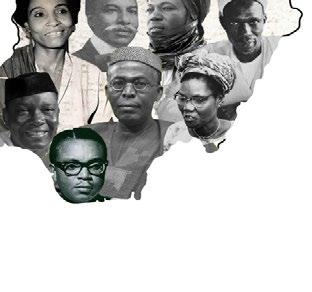















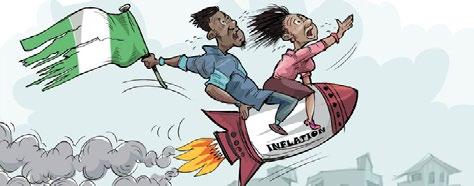


Center Spread Half Page N1, 300, 000
Double Spread N1, 550, 000

Double Spread Half Page N1, 200, 000
10X6 N700, 000
10X5 N650, 000
10X4 N600, 000
10X3 N500, 000
9X6 N440, 000
9X5 N395, 000
9X4 N335, 000
9X3 N310, 000

8X6 N410, 000

8X5 N380, 000
7X5 N320, 000
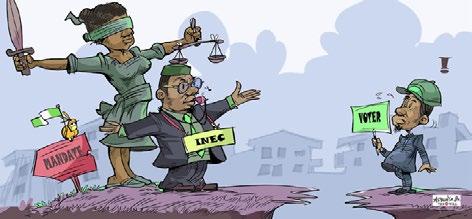



7X4 N315, 000
6X5 N280, 000

6X3 N145, 000
6X2 N85, 000
5X2 N70, 000
4X4 N160, 000
4X3 N95, 000
4X2 N65, 000
3X3 N60, 000
3X2 N50, 000
2X2 N30, 000
2X1 N15, 000
1X1 N7, 000
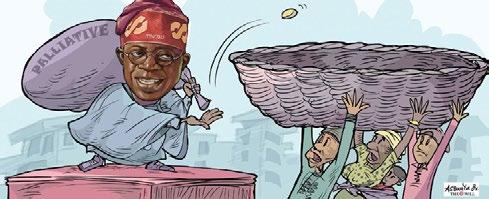
























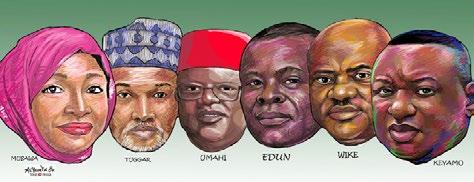

The disclosure by the Minister of Interior, Dr. Olubunmi Tunji-Ojo, that the Federal Government freed over 4,000 inmates in the correctional facilities, as part of decongestion efforts is a welcome development.
According to him, the measure is part of the ongoing efforts of his ministry to remove the burden of rising costs of feeding inmates, which runs into N3.3 billion every two months. Besides, the identified inmates are detainees as a result of minor fines.Only recently, the Nigerian Correctional Service, NCoS, raised the alarm that its budget is being harshly affected by the huge cost of feeding inmates owing to congestion caused by court delays and indifference by governors to sign death warrants of convicted felons.
According to the NCoS the number of awaiting-trial inmates which stood at 48,932, in January 2025 jumped to 53,254. What is more, the recent increase in feeding allowance for the inmates from N750 to N1,125 per day, raised the feeding budget of the Service to over N3.3bn.
But the point is all of this is that Nigerians are still being detained for minor fines and death row convicts are left in correctional services without follow-up action on the part of relevant authorities.
Indeed, the NCoS say that there are about 3,688 prisoners on death row across its various facilities in the country.
This number, according to the acting Comptroller General of the NCoS, Sylvester Nwakuche, is too high and counter -productive.

We call on reluctant governors to heed the acting NCoS Comptroller General’s suggestion to commute the death sentence of convicts, if they will not sign the death warrant. This would enable the Service to decongest the centres through the distribution of the convicts to NCoS facilities nationwide. More importantly, the judiciary should speed up the trial process of prisoners
He blamed state governors for the problem because many of them have refused to sign the death warrants of inmates on death row, thus leading to the further congestion of its facilities nationwide.Giving the numbers, he said that inmates on death row are now 3,688 from 3,590 in September 2024.
He said, “State governors are part of our challenges. They refuse to execute inmates on death row; neither do they commute their death sentences to life imprisonment. If they commute death sentences to life imprisonment, it is easier for us to distribute them to rural correctional facilities which are not as congested as those in urban correctional facilities.
“This is because the issue of congestion is a major urban phenomenon. Our correctional facilities in urban centres are more congested than those in rural areas. If we commute them to life sentencing, we will be able to distribute them equitably.”
Mr. Nwakuche, who made this disclosures during an appearance at the Senate last year, lamented that the situation has become so dire that he had to seek the support of sister security agencies such as the Economic and Financial Crimes Commission, the Police, the Nigeria Immigration Service and the Independent Corrupt Practices Commission in the management of inmates across the country.
Without mincing words, he blamed the slow pace of the judicial process in addressing the challenges faced by the NCoS, saying that, “If they have been sentenced, some of them will not spend up to two to three years in prison. But they have stayed in our
facilities for six years. For me, such persons should be discharged and acquitted. That is one area we must collaborate to decongest our facilities.
These statements are not only disturbing, but they are also a sad commentary on the administration of the justice system prevailing in the country. It is trite to repeat that congestion of correctional service centres by awaiting trial inmates and convicts have been plague in the country until the Administration of Criminal Justice Act 2015 was signed into law. It contains provisions to address all the challenges put before the Senate Committee on Interior and yet, no tangible action has been taken by the relevant authorities 10 years down the line.
It is on this note that we support some of the suggestions put forward by Mr. Nwakuche, at least in the interim.
We call on reluctant governors to heed the acting NCoS Comptroller General’s suggestion to commute the death sentence of convicts, if they will not sign the death warrant. This would enable the Service to decongest the centres through the distribution of the convicts to NCoS facilities nationwide. More importantly, the judiciary should speed up the trial process of prisoners. It is scandalous to say let alone verify that Nigerians are still held in correctional services for years without trial. Where then is justice?
Finally, we implore the Minister of Interior to sustain his ministry’s policy of decongesting the correctional centres regularly so that those who are unjustly held have the chance of breathing fresh air again.
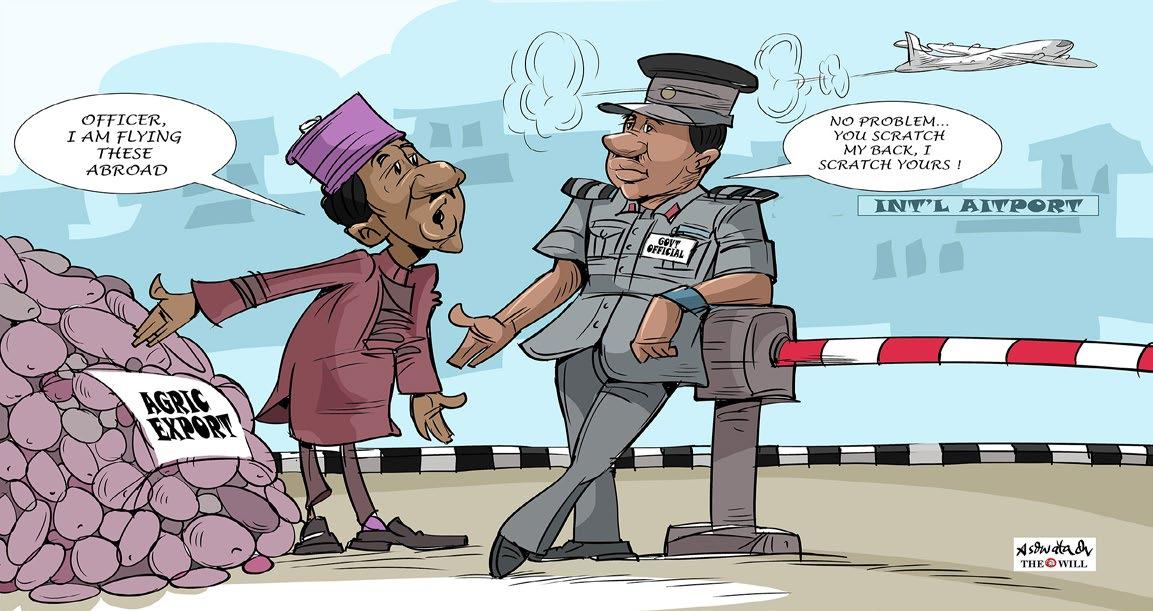




BY PROMISE ADIELE
In practical terms, one can confidently argue that democratic governance in Nigeria as we know it is disappearing, vanishing across all levels of political corridors. The politicians are engaged in inordinate, selfserving machinations towards retaining power in 2027.
Unfortunately, many Nigerians, lacerated by hunger, poverty and deprivation have become cheerleaders for the politicians, justifying why an incompetent cast should remain on stage in the next election.
We have deliberately embraced myopia which accounts for our collective statis, turning a blind eye to all the infirm realities of our economic and social conditions. Not because of our documented, longsuffering identities, but because we are simply timid, daily parading defeated consciences in the celebration of the disappearance of democratic governance in our country.
When a few courageous people speak up against the absence of democratic governance in the country since 2023, attack dogs, themselves victims of the feeble economy, manifest neurosis of resistance in defence of a cosmologically discredited system. It is either because their ethnic, religious, political or economic interests are challenged or they are averse to the enthronement of an egalitarian order which would summarily consign them to the frontiers of ignominy. Indeed, it is a farewell to democratic governance in Nigeria at all levels.
When Daniel Bwala, Bola Tinubu’s Special Adviser on Public Communication and Media declared in December 2023 that even if you give Mr President 30 years nothing will work, many people thought he was playing politics. That was before he shamelessly turned around to gleefully feast on the putrid contents of his vomit. Bwala was speaking in his capacity as the PDP Presidential Campaign Council spokesperson during the 2023 General Election. His statements were prophetic and accurate. Mortar and pestle can easily bear witness to the exactitude of his rare moment of epiphany. Perhaps, Bwala should be recognised as the Delphic Oracle of our time or better still, the Ifa prognostic essence in human form.
Since Tinubu’s ascension to power, democratic governance seems to be disappearing in Nigeria and in its place is hardship, inflation, poverty and a profligate governance protocol that benefits a few to the detriment of the masses. The current government has not positively affected the lives of Nigerians in any identifiable way which gives credence to Bwala’s 2023 effusions.

Every Nigerian citizen survives on sheer resilience and not because of any governmental intervention. Nigerians are daily assaulted by the government’s insensitive policies which culminate in an affront to their civic beings. The power psychosis of the political class is anti-progressive and does not contribute to the well-
In the place of democratic governance, the government feeds the people with misleading economic indices which do not reflect the prices of goods and services on the streets. Pointers to the absence of democratic governance in Nigeria are the total lack of accountability to the people and a positive economic outlook that
To add salt to injury, the APC-dominated government, assured that Nigerians are prostate and will hardly react to anything, is seriously making plans to retain power in 2027. Nothing could be more depressing.
THE POLITICAL CLASS IS DEEPLY INVESTED IN 2027 AND THAT INFORMS EVERY DECISION OF THE GOVERNMENT AT ALL LEVELS. ALTHOUGH PRESIDENT BOLA TINUBU HAS TITILLATED THE EMOTIONS OF HIS ADMIRERS BY STATING THAT HE HAS NO INTEREST IN REELECTION FOR NOW
In Rivers State, there has been absolutely no semblance of governance since 2023. The people of the state cannot, in good conscience, beat their chest to assert that there is governance in the state. Governor Sim Fubara, a beneficiary of the electoral chicanery and mangled system orchestrated by Nyesom Wike has never enjoyed his time as an elected governor.
Reports of electoral heist in Rivers State after the 2023 governorship election suggest that Fubara and Wike conspired to deny the people of Rivers State their collective electoral decision. But there is never honour among thieves. Sharing the loot between Fubara and Wike has almost crippled the state and governance has become a tell-tale in the oil-rich state.
Only Yesterday, Bola Tinubu sacked Fubara and summarily ushered in the military into a democratic dispensation. I have no business in the matter, but Tinubu’s actions reek of bias because while sacking Fubara, he spared the arrowhead of the conflagration in the state, Nyesom Wike. The history of the first republic seems to be repeating itself. Now, the military has been introduced into the fray.
As the late literary sage, Chinua Achebe, reminds us, he who brings ant-infested firewood home should not complain when lizards visit. It is only a biased father that would intervene in a fight between two of his children by blaming one child and exonerating the other. A terrible master strategist has betrayed innate bias by protecting the real troublemakers in Rivers State.
BY MON-CHARLES EGBO
Unarguably, the 10th Senate is now neck-deep into its most sensational defining moments since its inception. Its integrity and by extension, the National Assembly, is on trial. But for the record, Senator Natasha Akpoti-Uduaghan’s suspension was a sequel to her alleged unruly conduct on the floor of the Senate.
Again and so far, the President of the Senate, Godswill Akpabio did not sexually harass Natasha Akpoti-Uduaghan. However, there was, indeed, a very close relationship between Natasha and Akpabio.
For example, both of them have the same birthday which could have been marked individually, but Natasha sacrificed her celebration just to honour Akpabio’s event at kwa Ibom State.
Furthermore, Natasha was not only a first-timer; she came to the Senate about six months after her colleagues were inaugurated, yet she was assigned the chairmanship of a ‘juicy committee’ in addition to being nominated to represent Nigeria at the Inter-Parliamentary Union, IPU. In other words, she stepped into shoes bigger than her legs, though as a deliberate policy, all four female senators head committees.
So, in summary, what has thrown the Senate into this messy situation is a breakdown of the relationship between Akpabio and Natasha where the latter is seemingly on a revenge mission.
Then instructively, the unfortunate escalation of the feud was facilitated by those who ‘love’ Akpabio more than the rest of us. They are responsible for this avoidable attack on our democracy. Their ‘love’ for Akpabio is merely driven by regional sentiments, his office and of course, President Bola Tinubu’s political interest. Impliedly, it is this cupboard love which undermines national interest that has boxed the Senate into this tight corner.
To begin with, there was an outburst during the plenary wherein Senator Natasha Akpoti-Uduaghan alleged victimisation against Senate President Godswill Akpabio.
Two days later, she took to national television to add that she had been sexually harassed by Godswill Akpabio on two particular occasions. She emphasised that it was her refusal to succumb to the pressure that put her in a disadvantaged position culminating in her removal as Chairman of the Committee on Local Content and also
reallocation of her seat.
Meanwhile, it was her refusal to take up her newly assigned seat and the refusal of Akpabio to allow her to speak from her old sitting position that triggered the outburst which, indeed, violated the privileges of the senators. The anger and resentment of the senators were to be aggravated by the television outing. She could have exploited all the internal mechanisms to address her concerns rather than exposing the institution to public ridicule.
But as condemnable as her actions are, it was the ensuing reactions that did worse harm. This is because actions that are lacking in strategy and tact ultimately undermine target goals and objectives, despite the genuineness of the intentions.
In this context, Natasha made an allegation that cast doubt on the integrity of Akpabio, both as a senator and an embodiment of the most critical arm of the Federal Government. But rather than perceive it as a national concern, given that the Senate of the Federal Republic was under attack, it was reduced to a war of attrition between the two senators.
Apart from his wife, those who ‘love’ Akpabio more than the rest of us allowed primordial sentiments to becloud their senses of judgment. The old-fashioned mentality of “we and they” is today elevated to a towering height where no one remembers any longer why she was suspended in the first place.
IN THE FINAL ANALYSIS, IT IS AKPABIO THAT HAS A LOT TO LOSE. UNTIL THIS ALLEGATION OF SEXUAL HARASSMENT IS TRASHED FORMALLY, THE IMAGE AND REPUTATION OR PUBLIC GOODWILL THAT TRANSLATES TO HUGE POLITICAL CAPITAL AT THE APPROPRIATE TIME WILL CONTINUE TO ELUDE HIM
Within hours after Natasha’s outburst at the Senate, an aide of Akpabio took to social media to cast aspersions on her, describing her in the most derogatory manner to the extent of writing that Natasha puts on transparent dresses to the Senate.
Similarly, a principal officer of the Senate variously rose in media defence of the Senate President and went all out against Natasha, including telling Nigerians how Natasha had six children by six husbands, among others.
Yet again, within hours after Natasha’s television presentations, the Senate President’s wife, understandably driven by emotion, held a press conference in defence of her husband. Amidst her arguments, she expressed an opinion that Natasha’s husband was certainly not in support of what the wife said about and against Akpabio. This was immediately followed by a protest against Natasha by some women at Uyo, the Akwa Ibom state capital, calling her names.
Meanwhile, Natasha had slammed a suit against the office and person of the Senate President for defamation by the aide of Akpabio who was also joined as a defendant.
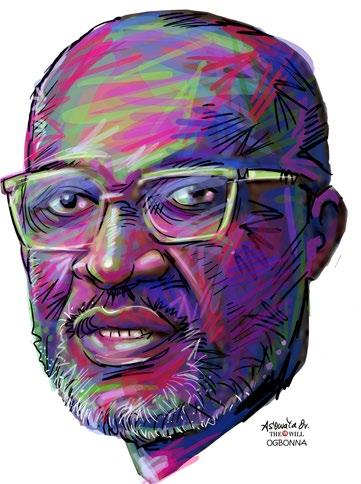
EDITOR Sam Diala
Bank of Industry Launches N10bn Fund for Female
The emergency rule imposed on Rivers State by the Nigerian President, Bola Ahmed Tinubu, is set to deepen the investment decline in the oil and gas-rich area. The President, in a national broadcast on March 18, 2025, announced an emergency rule for six months, in the first instance.
He also announced the suspension of the governor, Siminalayi Fubara, his deputy, Mrs Ngozi Odu and all elected members of the House of Assembly of Rivers State.
Additionally, the President announced the appointment of Vice Admiral Ibok Ette Ibas (Rtd) as Administrator “to take charge of the affairs of the state in the interest of the good people of Rivers State”.
In a shocking move, the National Assembly on March 20, approved the President’s action “through a voice vote”, thus violating the process of establishing a two-third majority of each of the Senate and the House of Representatives as prescribed by the Constitution.
Many stakeholders and political watchers have expressed grave concern over the “illegal” declaration of state of emergency in which the constitutionally elected governor and the state lawmakers were removed from office. They predict a possible socio-economic breakdown in a state that habours the major oil and gas deposit which constitute the mainstay of the nation’s economy.
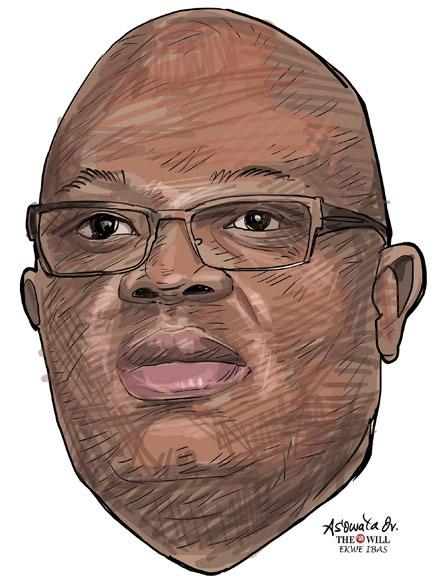
between 2019 and 2021. The NBS quarterly Capital Importation reports showed that only $0.08 million foreign investment was recorded in 2019 followed by $1.0 million in 2021.
The foreign investment climate remained in the amber state until Q4 2023, about seven months after the change of political leadership in the state in which Gov. Fubara succeeded Mr Nyesom Wike who ruled the state for eight uninterrupted years.
Engr. Kingsley Amadi, an oil and gas company operator, expressed concern over the possible impact of the current political disturbance in Rivers on the state’s economy, especially in the aspect of foreign investment. He noted that many international oil companies (IOCs) are divesting from the Niger Delta territory in recent years, following continued deteriorating business environment and unfavourable government policies.
“Rivers is the cradle of Nigeria’s oil and gas business. Port Harcourt was developed by Shell which helped to create many small and medium enterprises that were a major source of employment. The state is also rich in agriculture and its proximity to the ocean is a major advantage to the area. But what has happened in the state will scare investors and worsen the poor economic status of the state which many do not see,” Amadi told THEWILL on Friday.
Rivers has not recorded a foreign investment inflow in a long time, unlike its oil and gas producing counterparts like Akwa Ibom, Bayelsa and even Abia. Conversely, the divestment of the major oil and gas companies from the area is impacting severely on the economic advancement of the 58-yearold state.
According to the National Bureau of Statistics (NBS), Rivers recorded less than $2 million foreign investment
The highest foreign investment in Rivers since 2019 was the $6.0 million recorded in Q4 2023, as shown in the NBS Capital Importation Report for Q4 2023.
THEWILL reports that despite housing huge crude reserves, significant natural gas deposits and being the hub of Nigeria’s oil business, Rivers State attracted zero foreign investment in two quarters (Q1 and Q2) of 2024, according to data by NBS.
The NBS in its Q2 2024 Capital
Importation report showed that, after recording $6 million in 2023, Rivers had no dime to its name by way of investment inflow to the state during the half year period. Unlike in the past when Rivers was among the few states that featured as capital importation destinations in Nigeria, the report this time revealed a reverse trend.
By this, Rivers joined its neighbouring Imo, the only oil-producing state in the South-east region that attracted no foreign investment for over four years, to showcase zero capital importation during the period. (Imo’s two counterparts – Anambra and Abia states -- recorded a total of $51.48 million and $210.12 million, respectively up till last year, and Imo has the largest gas deposit in West Africa.)
THE NBS IN ITS Q2 2024 CAPITAL IMPORTATION REPORT SHOWED THAT, AFTER RECORDING $6 MILLION IN 2023, RIVERS HAD NO DIME TO ITS NAME BY WAY OF INVESTMENT INFLOW TO THE STATE DURING THE HALF YEAR PERIOD
Although Nigeria’s capital importation for Q2 2024 showed a dwindling trend generally, especially regarding oil and gas which recorded $5 million – following agriculture’s $5.9 million – analysts and industry experts noted that the lingering political crisis in Rivers State does not encourage investment inflow.
“Rivers is going to witness a downward trend in capital importation for a long time because its toxic political atmosphere is detrimental to economic growth and development. Capital is sensitive and would not go where its safety cannot be guaranteed,” Jerome Udehi, a finance expert, had told THEWILL.




Continues from page 34
Commenting earlier on the deteriorating political and economic environment in Rivers, an investment analyst, Abimbola Macaulay, noted that the tense situation in Rivers would end in setting the state backward for 20 years because the cracks it has created are deep and wide and the dramatis personae are not ready to give up.
“Rivers is retrogressing while others are moving forward. You can see how wealth could be a curse. When there is too much money in the hands of the leaders, they are carried away and would like to remain in power even to the detriment of the people,” Macaulay said in October 2024.
Besides loss of investment inflow, Rivers has carried indices of poor economic development in recent times, suggesting that despite its acclaimed oil wealth, the state and its indigenes do not fare better than most of the ‘poor’ states in real terms;
Notwithstanding its stupendous wealth, Rivers ranks among the leading poor states of the South-South. A number of quality living indices are also against the 58-year-old oil rich state which sits atop humongous wealth derived from its huge nature’s gift of oil and gas.
In an eye-opening report late 2023, data technology company, StatiSense, unveiled distressing findings from the Multidimensional Poverty Index (2022) report of the NBS concerning some states.
The report shaded light on the staggering number of people living in multidimensional poverty in Nigeria’s oilrich Niger Delta region, comprising states such as Akwa Ibom, Rivers, Cross River, Edo, Delta, and Bayelsa. The figures are nothing short of alarming and raise serious questions about the effective use of resources and policy implementation in these states.
The report revealed that Akwa Ibom, Rivers, and Cross River states were the hardest hit, with 5.08 million, 4.4 million, and 3.44 million people respectively living in multidimensional poverty. Recent data put Rivers’ population at 5.1 million people.
In a twist of fate that altered the boom era of the 80s/90s, when the Nigerian economy witnessed a rapid expansion that impacted positively on the GDP growth, employment, per capita income and general standard of living, the opposite has been the case in recent times, and the Niger Delta is among the worst hit.
The Nigerian economy is now plagued by the wave of divestment and exit of multinational companies across
Continues from page 34
various sectors since the early 2000. This signals a reversal of fortune as businesses struggle to cope with uncertainties of unyielding economic headwinds.
The multinationals’ exit occurred by way of scaling down operations, transferring ownership or outright selling their stakes in Nigeria. In any case, the impact is a mixed bag of fortune -- loss of investment (while Nigerian officials comb round the world for foreign investment), and active participation of domestic players in the economy. However, it does not earn the country a positive image boost.
Many international oil companies (IOCs) have sold their assets as they divest from Nigeria’s onshore and shallow water operations. These include Shell, Exxon Mobil, Chevron, Total Energy and Agip. Nigerian oil companies have reported acquisitions of assets and shares of the divesting IOCs in recent times.
In January 2021, the Trans-Niger Oil & Gas Limited (TNOG) and Transcorp Plc, owned by Nigerian billionaire Tony Elumelu, acquired 45 percent of OML 17 (an oil block) by buying up stakes from Shell (30 percent), TotalEnergies (10 percent) and Eni (5 percent).
And in December, 2024, Seplat announced the completion of acquiring the entire share capital of Mobil Producing Nigeria Unlimited (MPNU), Mobil’s onshore unit, from Exxon Mobil – a $1.28 billion deal.
Also, in December 2024, Nigerian government approved Shell’s sale of $2.4 billion in on-shore and shallow water assets to Renaissance Group. The deal marked the end of Shell’s nearly a century in Nigeria’s onshore oil and gas ecosystem.
TotalEnergies EP Nigeria, a subsidiary of the French energy group TotalEnergies, has sold its 10% participating interest in the SPDC JV licenses in Nigeria to the Nigerian company Chappal Energies for US$860 million.
According to an economist and former Director of Research and Advocacy at the Lagos Chamber of Commerce and Industry in Nigeria, Dr Vincent Nwani, the exodus of multinationals from the Nigerian economy has cost the country a N94 trillion loss of output in five years.
Rivers internally generated revenue (IGR) grew from N12 billion to N27 billion, according to Governor Fubara. The recent declaration of state of emergency in the state will set it backward through many avenues including tax and investments.

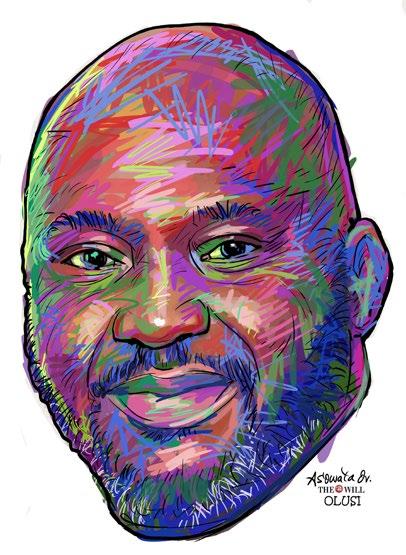



BY ABAYOMI FASHINA
The Nigerian House of Representatives recently passed four significant tax reform bills, signalling a potential shift in the country’s revenue system. While the government presents these reforms as essential for economic stability and long-term growth, the amendments introduced by the House have sparked debate about their true impact.
As the Senate prepares to deliberate, Nigerians are left questioning whether these measures will provide genuine economic relief or merely serve as another half-measure failing to address deeper structural deficiencies.
SENATE’S NEXT MOVE: COMPROMISE OR CONFRONTATION?
With the reform bills now awaiting Senate review, legislators face a critical decision: approve them as passed by the House or introduce further modifications.
One of the most debated elements is the retention of the current 7.5 percent Value Added Tax (VAT) rate, as opposed to the initially proposed increase to 12.5 percent by 2026. While this decision offers short-term relief for consumers and businesses already grappling with inflation, it also raises concerns about the government’s ability to meet its revenue targets without resorting to excessive borrowing.
A key point of contention is the reallocation of VAT revenue among states. The initial proposal aimed to allocate 60 percent of VAT proceeds to high-revenue states such as Lagos, where economic activity is concentrated. However, the House revised this distribution formula, reducing the allocation to 30 percent and favouring a more even redistribution. This adjustment, likely made to appease states with lower VAT contributions, rekindles the long-standing North-South revenue allocation debate. The Senate now faces the challenge of balancing regional interests while ensuring a fair and effective tax structure.
Beyond immediate tax adjustments, the broader economic implications of these reforms cannot be ignored. Nigeria has long struggled with revenue mobilisation, relying
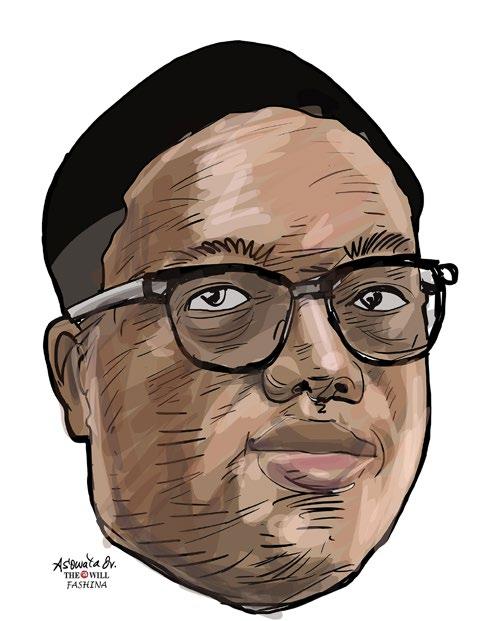
heavily on crude oil exports, which are subject to price volatility. The push for tax reform aligns with global best practices aimed at expanding non-oil revenue sources, but concerns persist about whether the proposed measures are sufficient to drive sustainable growth.
One major concern is the potential impact on businesses and investment. The uncertainty surrounding tax policy changes can deter investors, both local and international. While a stable tax regime is essential for economic planning, inconsistent policies risk undermining investor confidence.
The rejection of the VAT hike may provide temporary relief, but without alternative revenue sources, the government may resort to increased borrowing, exacerbating Nigeria’s debt burden.
Furthermore, the effectiveness of tax reforms depends not just on revenue generation but also on fiscal transparency and efficient public spending.
Many Nigerians remain sceptical about whether increased tax revenue will translate into improved infrastructure, healthcare, and education. Without a corresponding effort to curb government waste and corruption, higher taxes may only deepen public frustration.

As the Senate deliberates, a balanced approach is crucial. The tax reforms should aim to broaden the tax base, ensuring that revenue generation is sustainable without overburdening businesses and consumers. Rather than focusing solely on VAT adjustments, the government must explore more innovative strategies, such as improving tax compliance, reducing leakages, and leveraging technology to enhance tax collection efficiency.
Additionally, fiscal discipline and transparency should accompany any tax reform efforts. Nigerians need assurance that increased revenue will be used to drive development rather than being lost to inefficiencies. Enhanced accountability mechanisms, coupled with clear communication from the government, can help build public trust and encourage compliance.
In the coming weeks, the Senate’s stance on these tax reforms will shape Nigeria’s economic trajectory. Whether the outcome is a lifeline for economic stability or another policy misstep will depend on the willingness of policymakers to address the root causes of revenue shortfalls while fostering an environment conducive to growth.
The challenge now is not just passing tax reforms but ensuring they serve as a catalyst for real economic transformation.
•Fashina is a Tax and Risk

The push for tax reform aligns with global best practices aimed at expanding non-oil revenue sources, but concerns persist about whether the proposed measures are sufficient to drive sustainable growth

BY
Acouple of weeks ago, a striking report in one of our national dailies revealed “how contractors absconded with substantial sums of money while abandoning a significant number of federal government projects.”Globally, the public sector, in contrast to the private sector, continues to experience gross financial mismanagement, leakages, and wastages of collective resources. There is a prevailing perception that national resources are akin to a “national cake”— where individuals, when in need, simply take as much as they desire without permission, even setting aside extra for future use or for generations yet unborn.
Another contributing factor to this mindset is the belief that government or public enterprises belong to no one in particular, thus fostering lower expectations of transparency and accountability, compared to the private sector.
Strengthening public financial management and addressing the incidences of financial misconduct, gross mismanagement, wastages and leakages within the public sector require well-thought-out and calculated strategies. These include investigative exercises, parliamentary oversight through the Public Accounts Committee (PAC), whistleblowing mechanisms, independent audits, budgetary control and effective financial reporting mechanisms.

Others are adoption of internal check systems, promotion of internal auditing frameworks, application of the NOCLAR (Non-Compliance with Laws and Regulations) principle, implementation of robust internal control mechanisms, segregation of duties control, and most importantly, the establishment of the Audit Alarm Committee, which is the main focus of this discussion.
Where legally backed and accepted, the audit alarm system serves as a mechanism to report financial irregularities to those in leadership positions. The committee is tasked with identifying and addressing critical issues such as financial impropriety within the system. Others are deficiencies in revenue collection and payment processes, wastage of public funds, and financial leakages that undermine the effective utilisation of public resources. The public has a right to know whether public funds are being spent effectively, and this committee ensures that financial governance is upheld.
The Audit Alarm Committee is established under the provisions of Section 35, No. 48
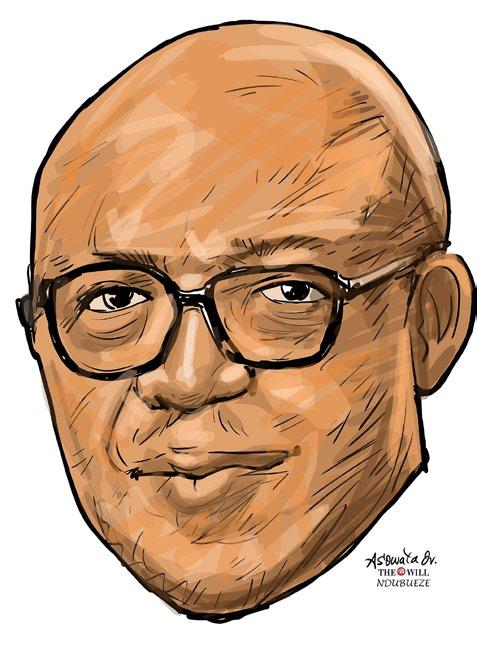
of the Civil Service Reforms Act of 1988. It is mandated to raise awareness and sanction any government or public official suspected of engaging in financial misconduct. Notably, the committee is chaired by the Auditor General of the Federation or the respective state.
Essentially, an “audit alarm” functions as a reporting mechanism, aligning with Deni Elliot’s definition of an action taken by an agent to bring purported illegal or unethical behaviour to the attention of relevant authorities, often bypassing conventional reporting channels.
The Audit Alarm Committee plays a crucial role in promoting accountability, transparency, and good governance among public officials. Its effectiveness is contingent upon strong institutional support to ensure that audit alarms raised within the public sector are scrutinised and deliberated upon. The committee also works to prevent fraudulent or irregular payments, particularly those under investigation, thereby reinforcing the integrity of financial transactions. By ensuring responsible management of national resources, the committee enhances public trust and confidence. Additionally, it has the authority to recommend sanctions or punitive measures against officers found culpable, in accordance with established guidelines.
Further reinforcing its mandate, the
committee maintains direct access to the presidency through the president’s representative on audit alarm matters. It is also empowered to notify the Public Accounts Committee (PAC) of significant audit alarms and serious pre-payment audit queries for which accounting officers of ministries, departments, and agencies (MDAs) are responsible.
Despite its merits, the Audit Alarm Committee faces several challenges. One major issue is the collusion between accounting officers and facilitators, which undermines the effectiveness of financial oversight and accountability measures.
Additionally, individuals raising audit alarms often face threats to their lives and job security, deterring whistleblowing efforts. There are also challenges in clearly defining what constitutes an “irregular payment” within the public financial system.
Confidentiality concerns further complicate the situation, as ensuring the protection of sensitive financial information within the public sector remains a significant hurdle. Bureaucratic bottlenecks also impede the swift resolution of audit-related issues, as rigid administrative structures and hierarchical reporting chains slow down corrective actions.
The establishment and effective functioning of the Audit Alarm Committee remain critical in addressing financial irregularities within the public sector. While challenges exist, overcoming these hurdles through policy reforms and institutional strengthening will enhance financial accountability and governance in Nigeria.
•Ayozie is a Chartered Accountant and Public Affairs Analyst
Strengthening public financial management and addressing the incidences of financial misconduct, gross mismanagement, wastages, and leakages within the public sector require well-thought-out and calculated strategies
Photo Editor: Peace Udugba [08033050729]
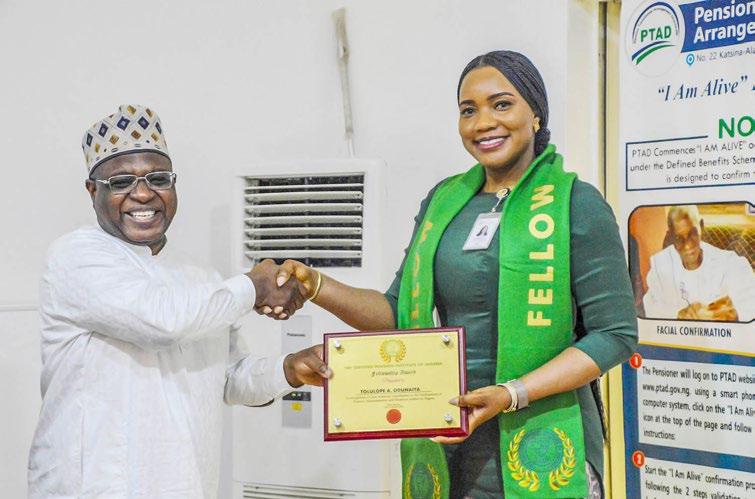

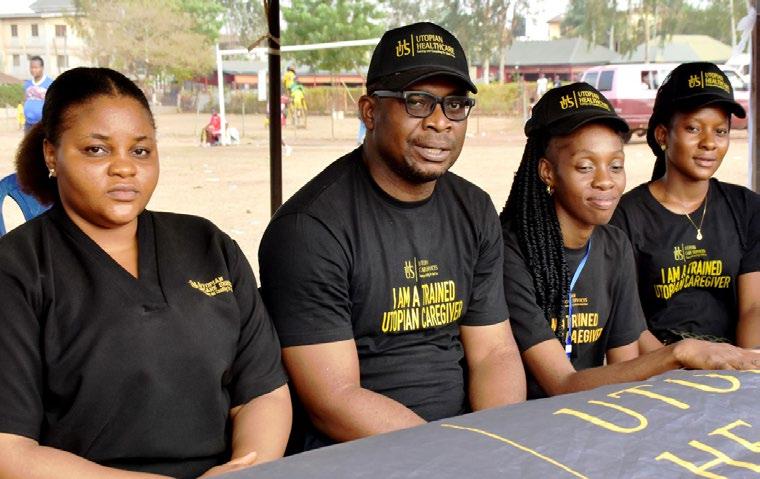
Certified Caregiver, Utopian Healthcare Services (UHCS), Enugu, Ms Chisom Okwum; Utopian Agency Care Lead, Mr. Anyigor Nwode; Community Outreach Lead, (UHCS), Mrs Ugochi Ezeokeke and Enugu State Coordinator (UHCS), Ms Mercy Ugwor, during UHCS Free Healthcare Services at the ongoing Sacred Heart Group of Schools Inter-House Sports Competition in Enugu on March 18, 2025.
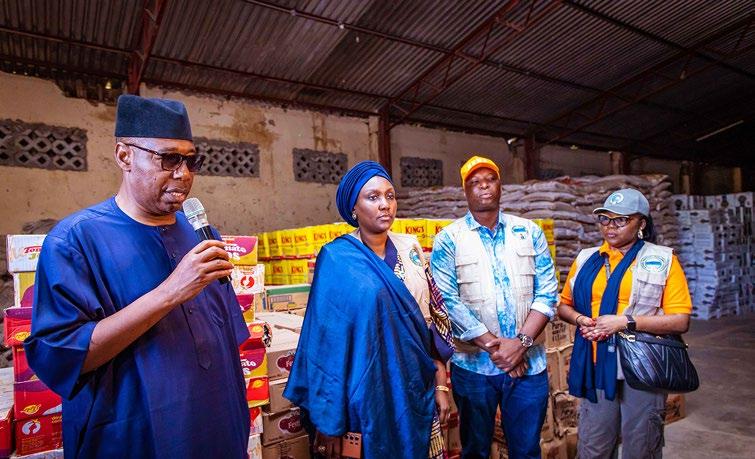
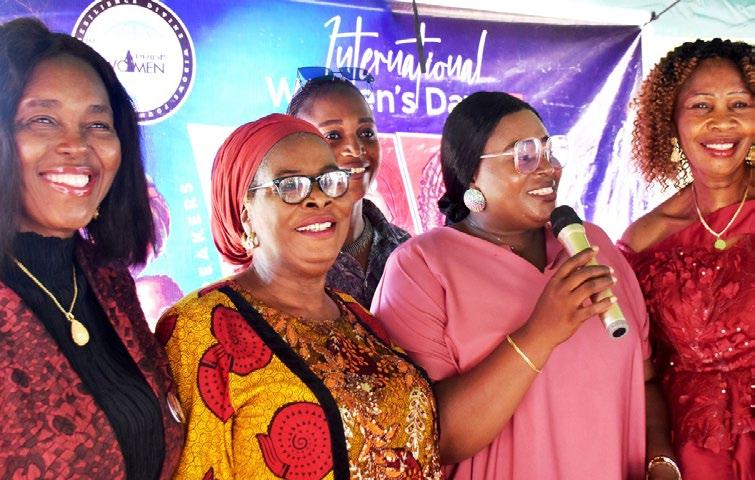
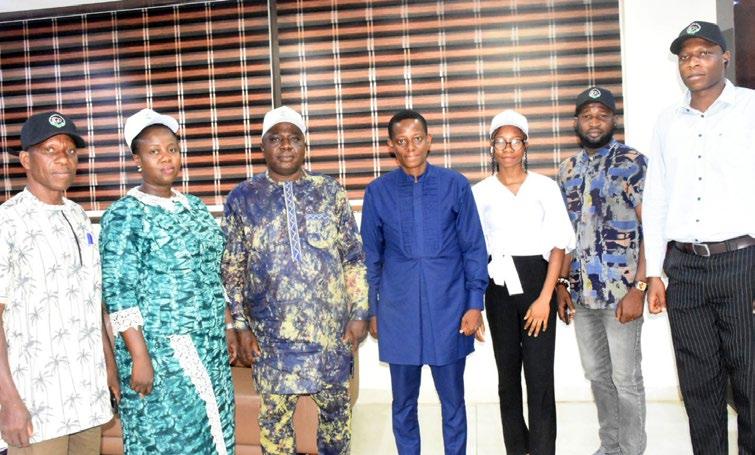






BY JUDE OBAFEMI
On Friday, Nigeria’s Super Eagles faced Rwanda at the Stade Amahoro in Kigali, a match that carried significant weight for their 2026 World Cup qualification hopes. With Eric Chelle making his debut as head coach, the team claimed a 2-0 victory, driven by Victor Osimhen’s two goals. This result marked a step forward for Nigeria, who had struggled in the qualifiers, but it also raised questions about whether this win signalled a genuine turning point or merely a temporary lift in a campaign fraught with challenges.
Nigeria entered the match in a precarious position. The team, with a history of three Africa Cup of Nations titles and six World Cup appearances, had only three points from four games, placing them fifth in Group C. Rwanda, surprisingly, was above Nigeria on seven points, having beaten South Africa 2-0 earlier in the campaign.
The Super Eagles’ previous coaches - José Peseiro, Finidi George, and Augustine Eguavoen - oversaw a winless run of three draws and one loss, a stark contrast to the nation’s footballing legacy. Missing the 2022 World Cup still stung, and another failure would be devastating for fans. Chelle, a Franco-Malian coach appointed in January, faced immediate pressure to deliver against a Rwanda side aiming for their first-ever World Cup appearance.
Chelle opted for a 4-2-3-1 formation, a departure from the 4-4-2 he often used with Mali, to suit Nigeria’s attacking players. The starting lineup
“ Eric Chelle
For a nation where football is a unifying force, this victory in Kigali offers hope after a difficult campaign

included Stanley Nwabali in goal; a back four of Ola Aina, Calvin Bassey, William Troost-Ekong, and Bright Osayi-Samuel; a midfield double pivot of Wilfred Ndidi and Samuel Chukwueze; attacking midfielders Alex Iwobi, Ademola Lookman, and Moses Simon; and Osimhen up top. This setup aimed to balance defensive stability with offensive threat, relying on Lookman’s creativity and Osimhen’s finishing to break down Rwanda’s defence.
The game began with Nigeria asserting dominance. In the 11th minute, Lookman delivered a well-placed free kick to the back post, where Osimhen, unmarked, scored past Rwanda’s goalkeeper, Fiacre Ntwari.
The early goal set the tone and Nigeria continued to press. Moses Simon nearly doubled the lead in the 25th minute, but Ntwari made a fine save to deny his shot from inside the box. Rwanda struggled to respond, with their defence under constant pressure from Lookman’s set-pieces and Nigeria’s high pressing. Just before half-time, Chukwueze played a delightful pass to Osimhen, who showed composure to beat Ntwari, making it 2-0. The first half ended with Nigeria firmly in control, their attacking intent paying off.
The second half saw Rwanda push forward, but Nigeria’s defence held firm. Nwabali made a key save to stop Innocent Nshuti, while Troost-Ekong and Bassey remained solid at the back. Chelle made substitutions to maintain energy, with Chukwueze and Aina replaced in the 67th minute, followed by Osimhen and Osayi-Samuel in the 77th minute. Despite these changes, Nigeria’s midfield showed moments of imbalance, with Ndidi and Chukwueze struggling to control the game at times. Rwanda’s late pressure yielded no goals and Nigeria secured a clean sheet, a positive sign for Chelle’s debut.
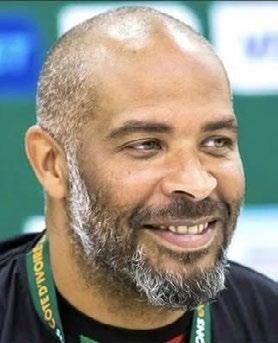
Osimhen’s performance stood out. His two goals - his 24th and 25th for Nigeria - highlighted his importance to the team. The first showed his aerial ability, while the second demonstrated his composure under pressure. Lookman played a key role, providing the assist for the opener and troubling Rwanda with his brilliance. Chukwueze, despite an unfamiliar role in the pivot, contributed with the assist for the second goal, though his influence waned in the second half. Simon was lively on the wing, coming close to scoring, while Iwobi added creativity but picked up a yellow card for a clumsy challenge. Defensively, Troost-Ekong and Bassey formed a strong partnership, with Nwabali’s saves ensuring Rwanda could not mount a comeback. Aina and Osayi-Samuel provided width, though both showed defensive lapses at times.

This win moved Nigeria to six points in Group C, with Rwanda remaining on seven. South Africa, after a 2-0 victory over Lesotho, led with ten points, four ahead of Nigeria.
With five games remaining, including a home match against Zimbabwe on March 25, Nigeria must maintain consistency to claim the group’s automatic qualification spot. The Zimbabwe game, against a team with three points, offers a chance to build momentum, but the Super Eagles cannot afford further slip-ups. Chelle’s debut showed promise, particularly in attack, but the midfield’s dip in balance and occasional defensive vulnerabilities suggest work remains.
Osimhen’s goals stole the spotlight, but Nigeria’s path to the 2026 World Cup hinges on addressing deeper issues. Chelle’s tactics brought a more attacking approach compared to Peseiro’s cautious style or George’s brief, unsteady tenure, yet the team’s performance was not flawless. The midfield pairing of Ndidi and Chukwueze, while industrious, lacked cohesion, leaving gaps that Rwanda exploited in the second half. Defensively, while the clean sheet was encouraging, moments of lost focus - such as Nshuti’s chance - could prove costly against stronger opponents. Chelle must find a way to blend Nigeria’s attacking talent with greater stability in midfield and defence, a challenge that has plagued the team throughout the qualifiers.
For a nation where football is a unifying force, this victory in Kigali offers hope after a difficult campaign. The 45,508-capacity Stade Amahoro saw a large turnout of Rwandan and Nigerian supporters, their chants echoing through the stadium. Nigeria’s fans, still scarred by missing the 2022 World Cup, see this result as a step forward, but scepticism remains.
The Super Eagles have a history of inconsistency, often following strong performances with unexpected setbacks. Chelle’s ability to instil discipline and consistency will determine whether this win marks a genuine shift or a fleeting moment of success.
The broader context of Group C adds urgency to Nigeria’s task. South Africa’s lead, combined with Rwanda’s form, means the Super Eagles must win most of their remaining matches to qualify. The team’s attacking talent - led by Osimhen and Lookman, the last two African Footballer of the Year winners - is undeniable, but football demands more than individual brilliance.
Chelle’s challenge is to mould this squad into a cohesive unit, capable of performing under pressure against tougher opponents.

The suspension of Dangote Refinery’s fuel sales in naira has raised significant concerns within Nigeria’s energy sector, prompting questions about fuel price increases and economic pressure. This development stems from difficulties in obtaining crude oil under a local currency agreement with the Nigerian National Petroleum Company Limited (NNPCL), revealing weaknesses in Nigeria’s efforts to stabilise its fuel market and reduce dependence on foreign currency.
The breakdown of the naira-for-crude arrangement, initially viewed as a potential fix for Nigeria’s persistent foreign exchange shortages, means refineries must seek dollars to procure crude, which may drive up fuel costs and disrupt supply.
The naira-for-crude arrangement began in October 2024 on sixmonth trial to ease the strain on Nigeria’s foreign exchange reserves. Under this plan, NNPCL committed to providing crude oil to local refineries, including Dangote Refinery, in exchange for fuel priced in naira. The goal was to lower the need for dollars in fuel production, keep fuel prices low and steady and bolster the domestic refining sector. However, the arrangement’s collapse has exposed serious shortcomings in its implementation and long-term viability.
A key factor in the failure was NNPCL’s inability to deliver crude oil consistently under the naira terms. Local refineries reported receiving far less crude than agreed. For example, Dangote Refinery, which needs 650,000 barrels per day to function at full capacity, faced significant shortfalls in supply. This gap forced the refinery to buy crude from international markets in dollars, defeating the purpose of the naira-based plan.
The unreliable crude supply resulted from multiple issues. NNPCL’s existing contracts with international partners often took priority, leaving little crude for local use. Additionally, Nigeria’s low oil production, worsened by theft and lack of investment, limited the crude available domestically. Average daily production for the month of February declined to1.46m barrels per day from 1.53m recorded in January 2025.
The economic consequences of Dangote Refinery halting fuel sales in naira are immediate and widespread. With local refineries now purchasing crude in dollars, fuel production costs are likely to rise. This increase will probably lead to higher prices at fuel stations for consumers.
Nigeria has already seen fuel costs climb sharply since the government ended subsidies in 2023. The present situation could push prices even further, adding pressure to households and businesses. This will fuel inflationary increases beyond what is currently afflicting individuals and corporations.
Higher fuel prices will lift transport and manufacturing expenses, causing a general increase in the cost of goods and services. This development would burden an economy already facing high
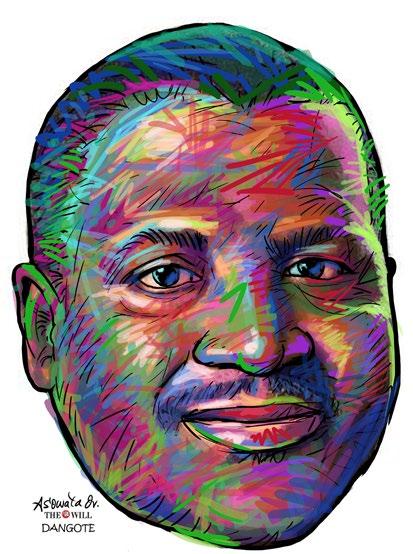
interest rates, security issues, and inadequate electricity supply.
The greater demand for dollars to buy crude will also further weaken the naira, which has lost significant value within the last ten years. Nigeria’s foreign reserves face ongoing stress from continued reliance on imported fuel and crude for local refining.
The government’s response to this situation has drawn mixed reactions, with questions about its dedication to supporting local refining. In a statement, the NNPCL addressed concerns that read in part: “To clarify, the contract for the sale of crude oil in Naira was structured as a six-month agreement, subject to availability, and expires at the end of March 2025. Discussions are currently ongoing towards emplacing a new contract. It finished with: “NNPC Limited remains committed to supplying crude oil for local refining based on mutually agreed terms and conditions.”
So far, these discussions have not yet produced firm outcomes, and the refinery has already turned to international markets, recently buying two million barrels of U.S. WTI Midland crude. The government’s approach, seen by some as reactive rather than proactive, has fuelled doubts about its ability to carry out effective energy policies over the long term.
I would like to note that there are powerful interests within and outside the NNPC that never wanted this crude for naira arrangement to succeed but would rather the NNPC continue to award lucrative contracts for the importation of refined petroleum products.

Energy experts have urged for more openness and better planning in managing Nigeria’s oil resources. The failure to prioritise local refining needs over export deals points to poor coordination between NNPCL and the wider energy sector. Without a clear and binding system for allocating crude, local refineries will continue to face difficulties, and Nigeria’s goal of exporting refined products will remain out of reach.
The lack of a steady crude supply undermines the potential of refineries like Dangote to transform the country’s energy landscape. All of these carry important implications for Nigeria’s energy security. Dangote Refinery, capable of processing 650,000 barrels per day, was expected to meet all of Nigeria’s fuel needs and generate surplus for export. However, its struggle to obtain enough crude locally has led to reliance on imported crude, casting doubt on its long-term success. Other local refineries will also suffer from this circumstance. These facilities, intended to cut Nigeria’s dependence on imported fuel, now face similar supply and cost challenges, which could delay their operations. This situation highlights the need for a stronger crude supply framework that puts domestic refining first. The end of the arrangement also risks undoing recent progress in reducing fuel imports. In 2024, Nigeria’s imports fell to their lowest in eight years, largely due to Dangote Refinery’s production. However, with the refinery now sourcing crude from abroad, the country may return to relying heavily on imported fuel, reversing gains toward energy self-sufficiency. This shift could increase foreign exchange spending and leave Nigeria vulnerable to global oil price fluctuations.
The end of the naira-for-crude plan raises serious questions about the future of Nigeria’s refinery sector. While Dangote Refinery represents a major investment in local capacity, its ongoing challenges reflect broader systemic problems. Without a dependable and affordable crude supply, local refineries cannot run at full strength, and the benefits of domestic refining—lower fuel prices and reduced foreign exchange strain—will not materialise. The government must act decisively to address these issues. Prioritising crude allocation to local refineries, even if it means renegotiating international contracts or boosting oil production, is a critical step. Increasing output would require tackling oil theft and attracting investment to the sector, both longstanding challenges.
Transparency and accountability in managing oil resources are equally vital. The Nigerian Upstream Petroleum Regulatory Commission (NUPRC) has faced calls to enforce rules requiring oil producers to supply local refineries, a demand Dangote Refinery made in mid-2024. Without such measures, supply shortages will persist, and Nigeria’s energy security will remain fragile.
President Bola Tinubu must take aggressive and decisive steps to ensure that the NNPC delivers crude to local refiners under the nairafor-crude arrangement and block the NUPRC from issuing fresh licenses to import refined petroleum products.